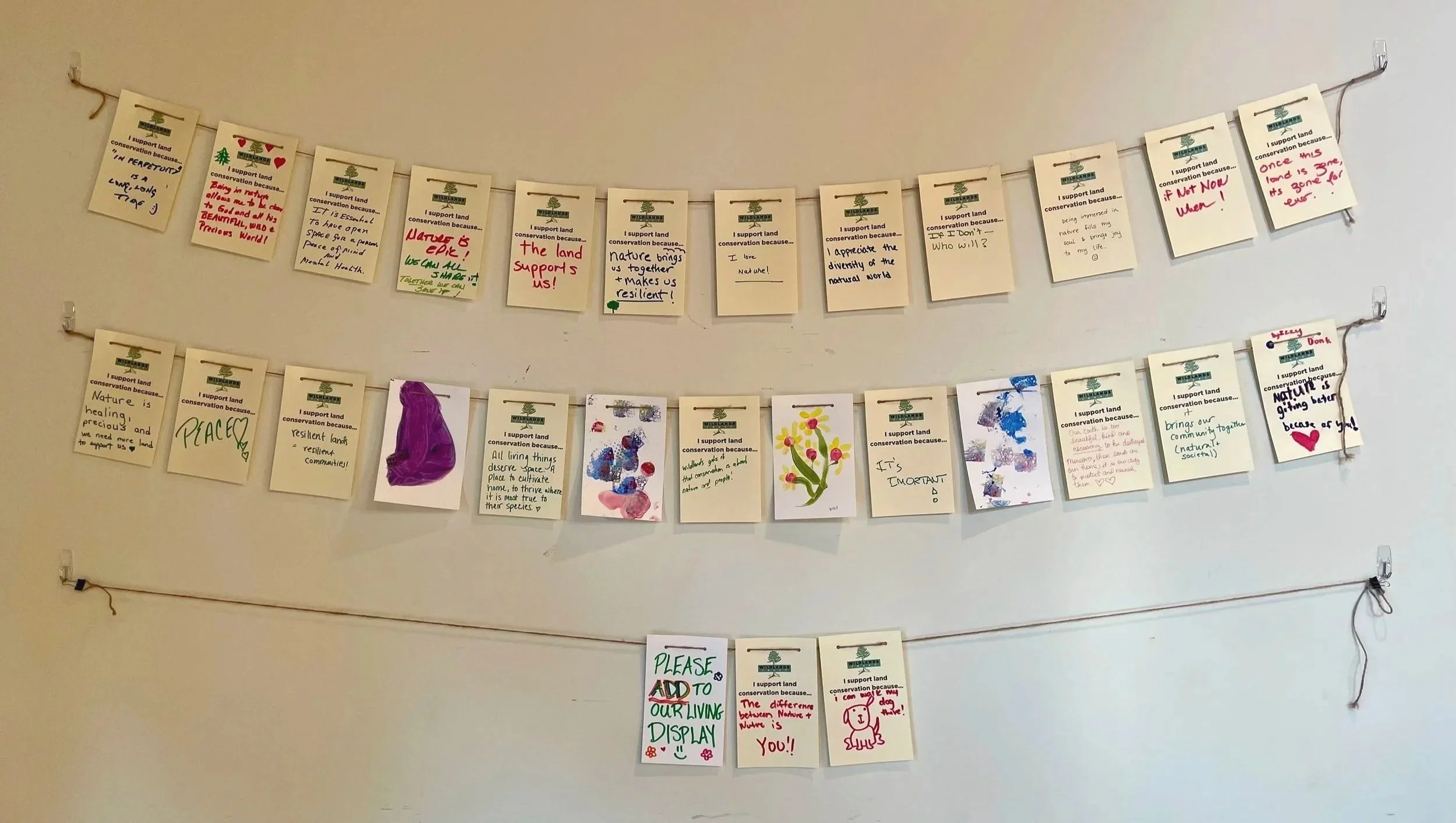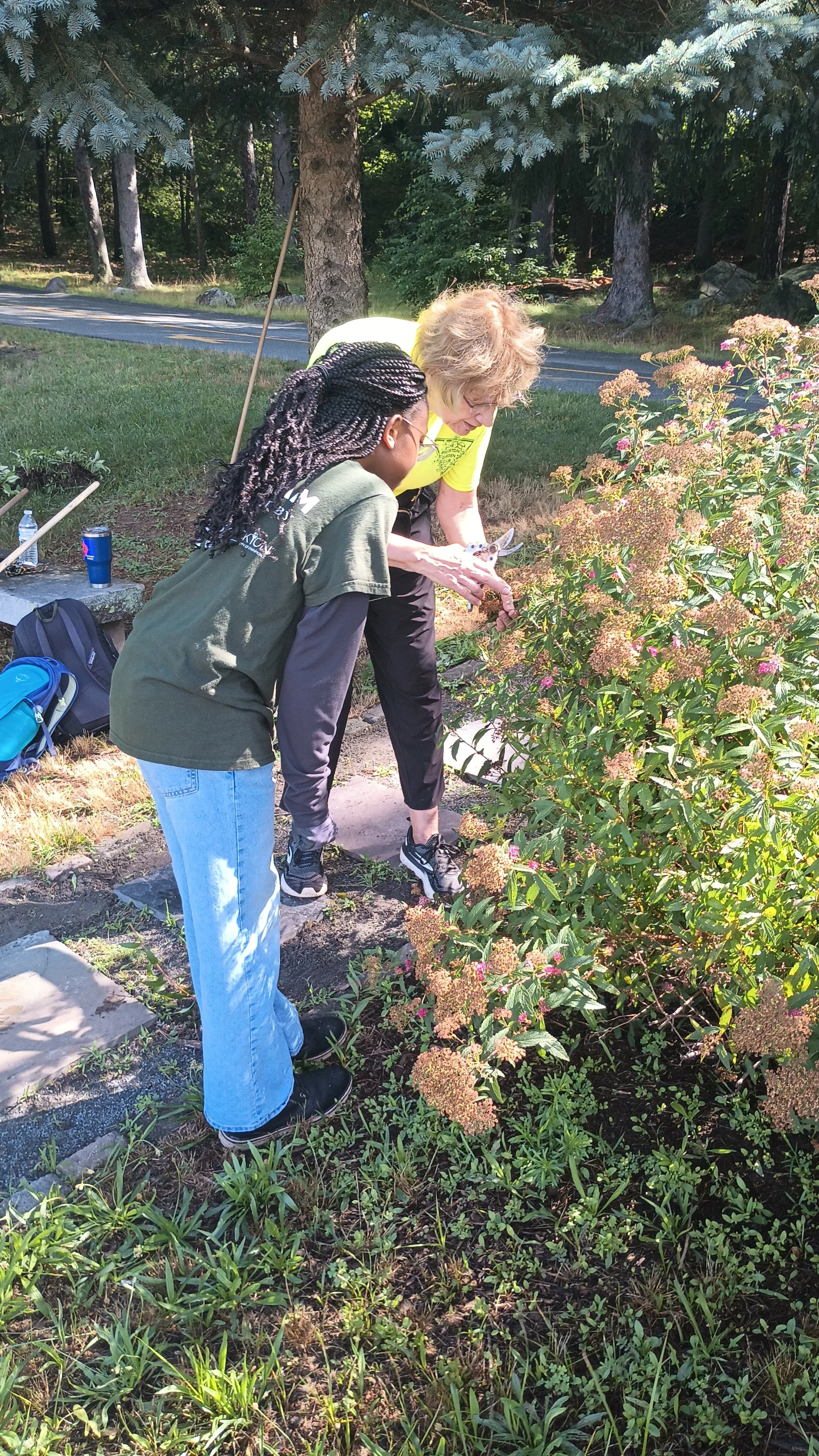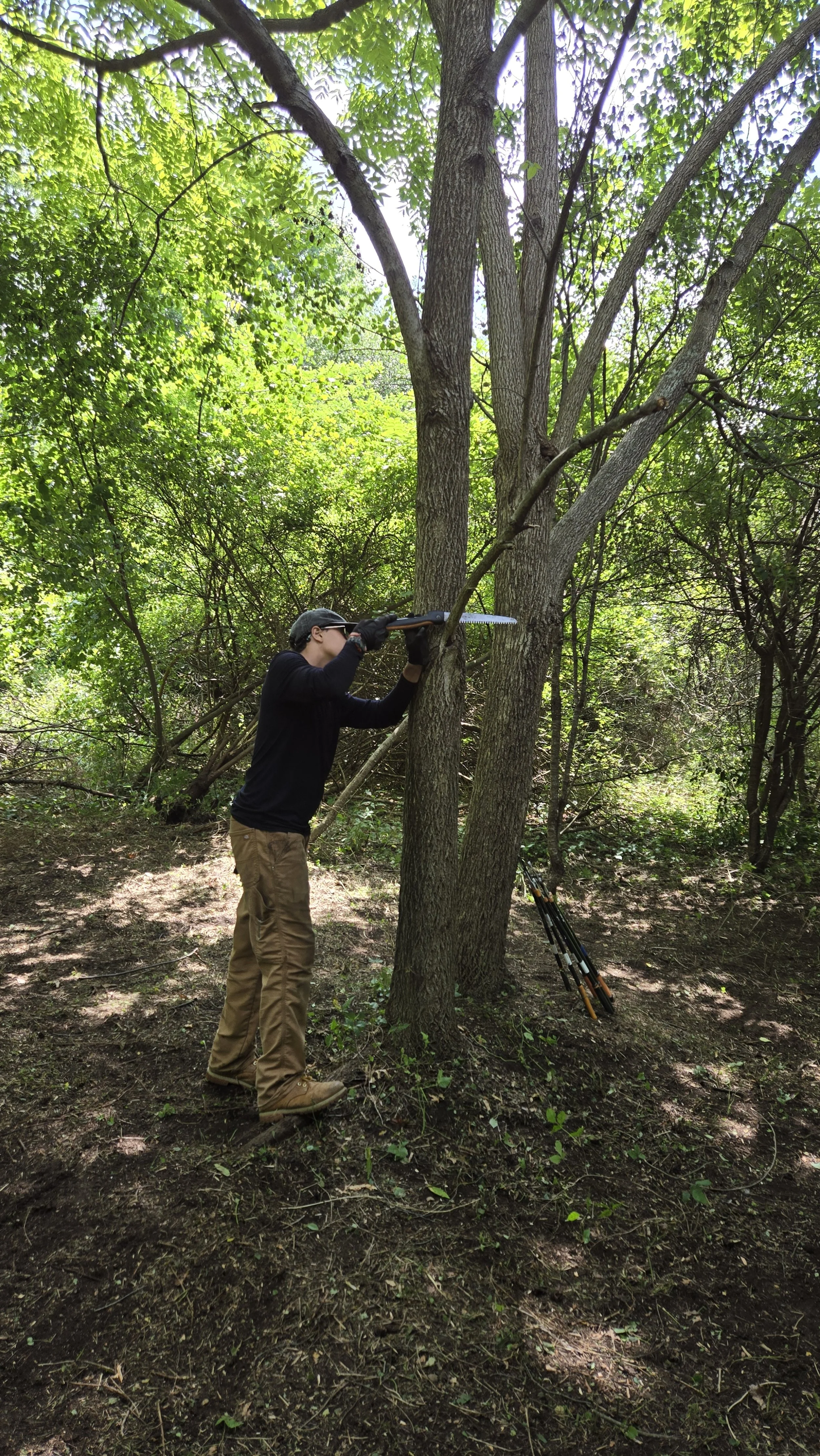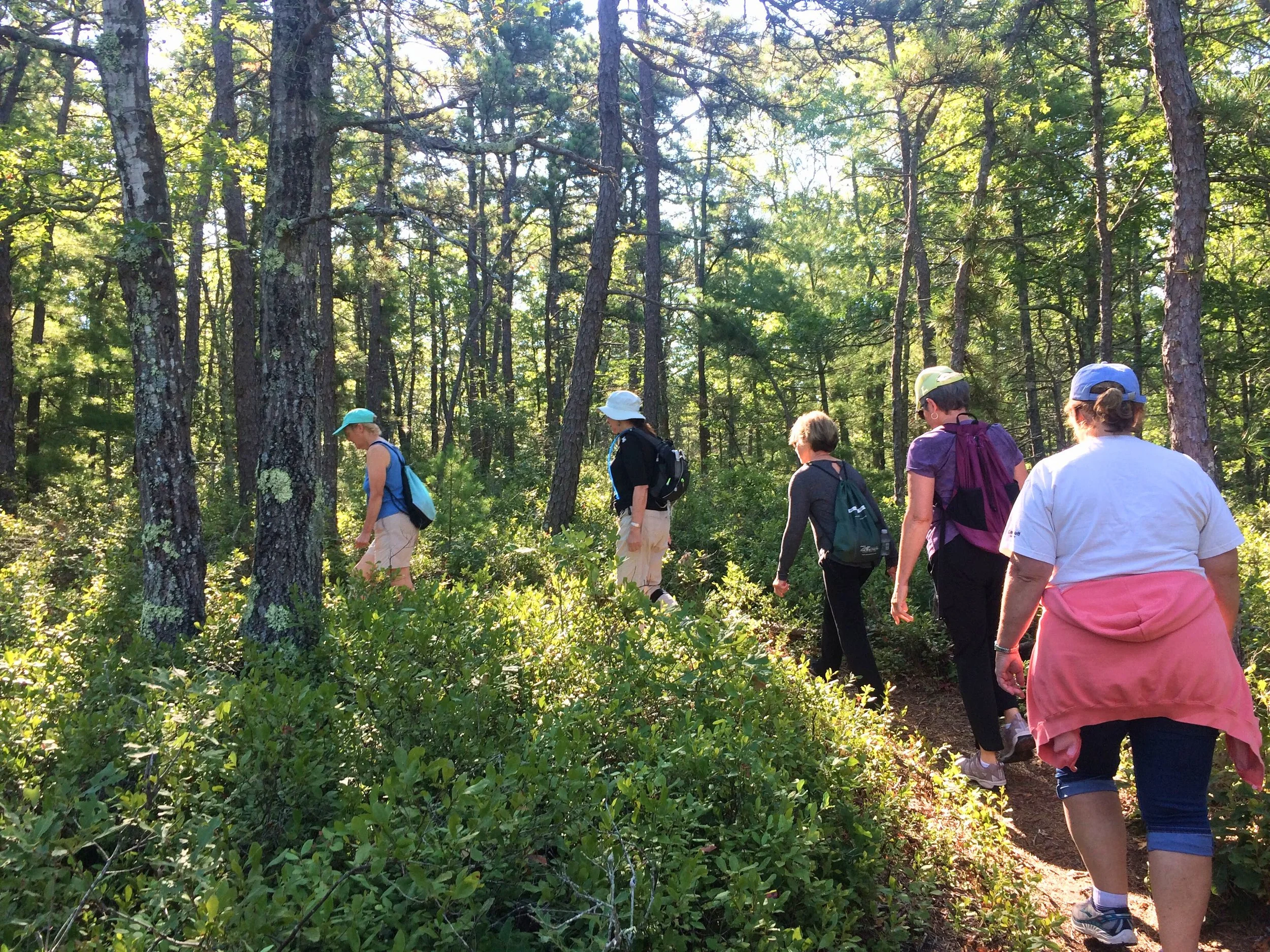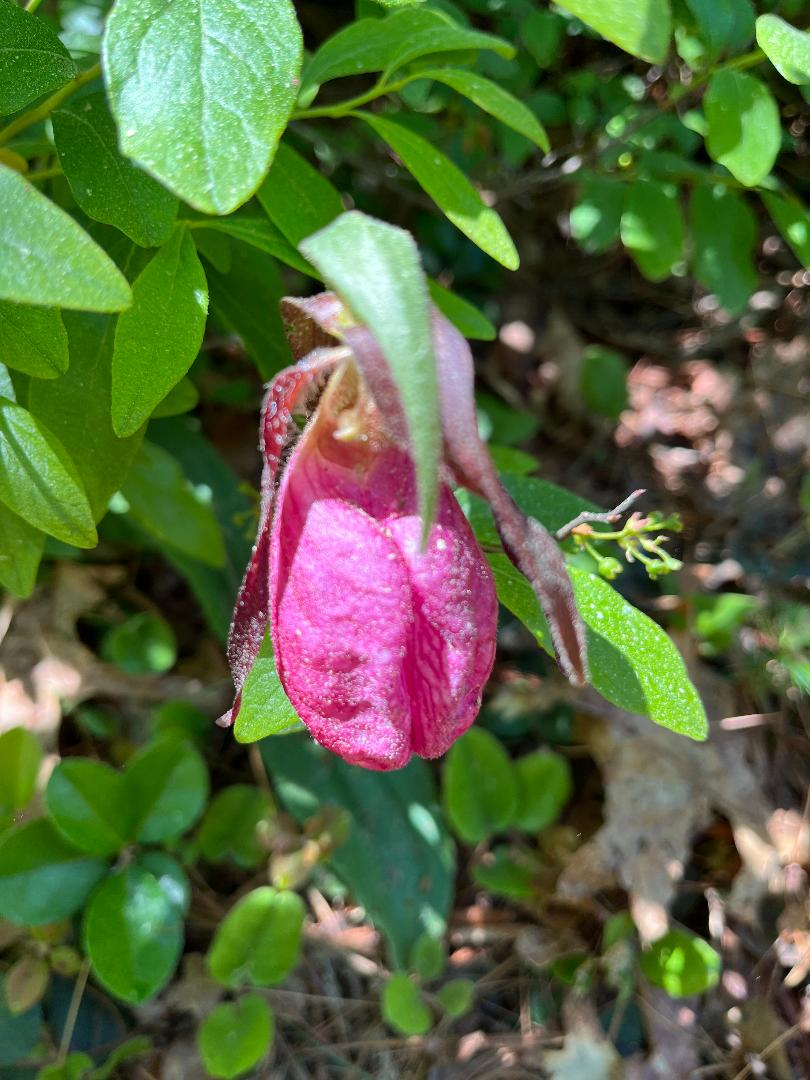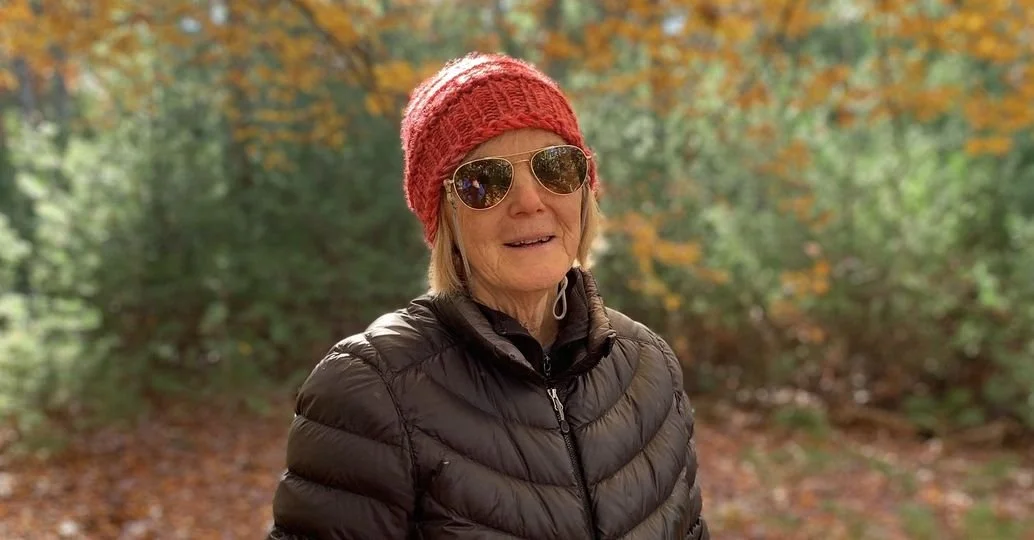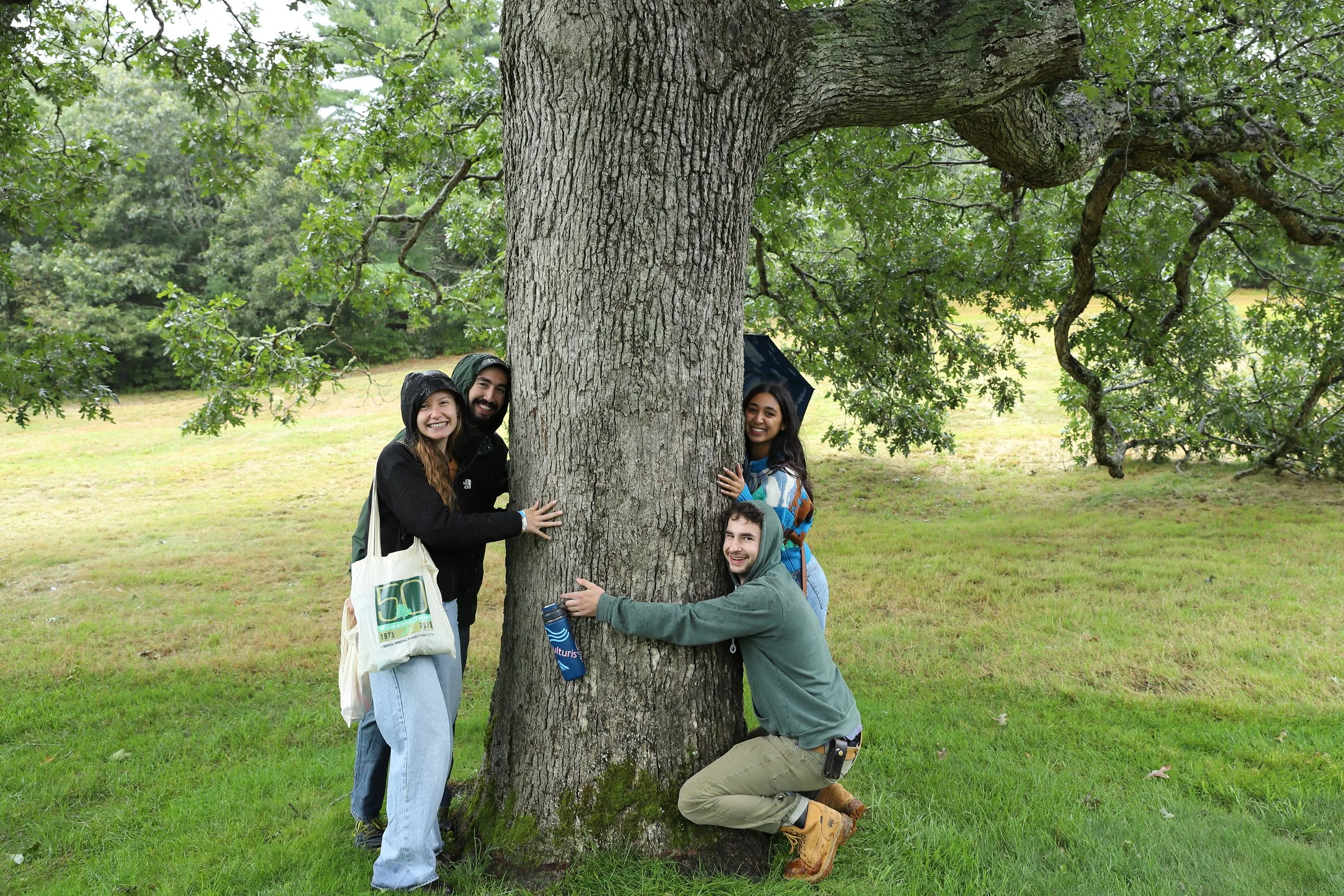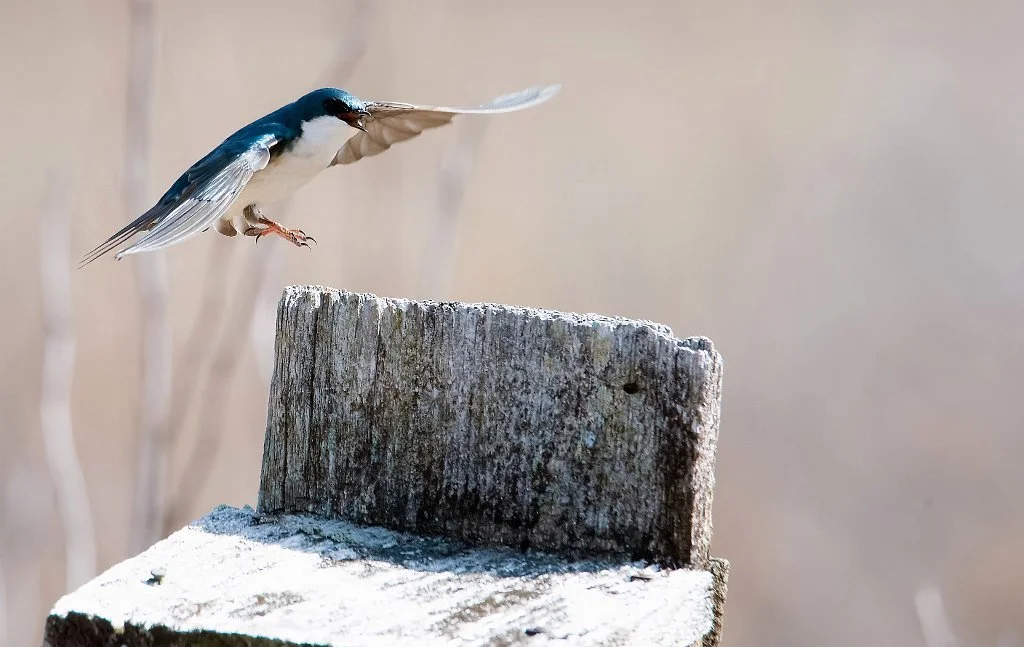What’s New at Wildlands
Why do you support land conservation?
By Thomas Patti, Communications Coordinator
In June, our Solstice Celebration brought together conservation champions from across Southeastern Massachusetts for a day of art, music, food, hikes, and much more at Davis-Douglas Farm in Plymouth. Over 150 of us joined our voices to send a resounding message that nature is vital to the future of our region.
Our voices are louder together, but they are not all the same. Since land conservation has so many benefits, ranging from ecological to economic to spiritual, it perhaps comes as little surprise that there are almost as many reasons to support our work as there are people who support it.
To better serve our community, we wanted to know why people donate their money, time, and passion to our mission. So, we asked. During the Solstice Celebration, a station inside the Community Conservation Barn invited attendees to decorate small banners by completing the statement, “I support land conservation because…” We strung up their responses on a wall inside the barn to create a living tapestry, symbolizing our community’s diverse motivations to realize our shared vision.
Explore some of these motivations in the photo gallery below. Click on each photo to view the full caption.
Why do you support land conservation? Tell us in the comments or add a banner to our tapestry the next time you visit Davis-Douglas Farm!
Thank you to all who support our mission to keep Southeastern Massachusetts a remarkable place to live, work, and play. Your generosity makes our work possible. Feeling inspired? Join our community at wildlandstrust.org/membership.
Green Team 2025: Brockton Youth Serve, Learn & Earn
A Green Team member builds a bench for the outdoor classroom at Raymond Elementary School in Brockton.
By Amy Burt, Programming Coordinator
Green Team returned to Brockton for a fourth summer in 2025 to work on projects at D.W. Field Park and the surrounding area. Wildlands Trust and Manomet Conservation Sciences sponsor, design, and lead Green Team to engage Brockton-area high school students in conservation service-learning.
Green Team crewmembers acquire skills in environmental management while learning about the city’s natural resources. Daily discussions with local professionals expose them to diverse career opportunities. Participants earn a stipend of $70 per day.
This year’s program garnered greater interest than last year, with 42 students applying. We were able to accommodate more crewmembers this year by offering two sessions of Green Team, one in July and the other in August. In total, 23 teens participated.
Green Team monitors birdboxes at D.W. Field Park in Brockton.
Crewmembers were hands-on every day, rain or shine. In addition to managing waste, painting picnic tables, collecting environmental data, and gardening at D.W. Field Park, the crew completed trail work at the new Fieldstone Preserve, helped build an outdoor classroom at Raymond Elementary School, and maintained the grounds at the Fuller Craft Museum.
We asked our teams what their favorite projects were and what they were most proud of accomplishing. There were a few themes:
Immediate gratification projects
Enhancing their outdoor skills through workdays and the campout
Team-building and making new friends
Green Team kayaks on Halfway Pond with the North and South Rivers Watershed Association.
Each Green Team session culminated with an optional overnight campout at Wildlands’ Stewardship Training Center in Plymouth. Attendees explored the area, cooked meals, and camped in tents. Nighttime hikes and bat echolocation games introducing the concept of dark adaptation were a (low-light) highlight. The July crew spent a morning kayaking on Halfway Pond with the North and South Rivers Watershed Association. The August crew enjoyed an exclusive tour of the Trevor Lloyd-Evans Banding Lab at Manomet Conservation Sciences. Wildlands and Manomet co-hosted these campouts for the second year in a row, enriching Brockton youth’s outdoor experiences through Green Team.
According to a post-program survey, 100 percent of crewmembers felt that Green Team will have a positive impact on their future. The top benefits they reported included learning about new jobs, finding better pathways into the environmental field, getting outside more, and making new friends.
Green Team smiles after weed removal at D.W. Field Park in Brockton.
When asked how Green Team might have an impact on their future, crewmembers said…
“I think it has impacted my future because I am considering doing more field science and working with people instead of lab science.”
“It will inspire me to be more conscious with my environment.”
“It helped me feel more comfortable working in nature.”
“I always knew I wanted an environmental career, and this experience solidified my opinion on the topic.”
“Now I think it's easy to make friends.”
Click through the photo gallery below for more sights from Green Team 2025.
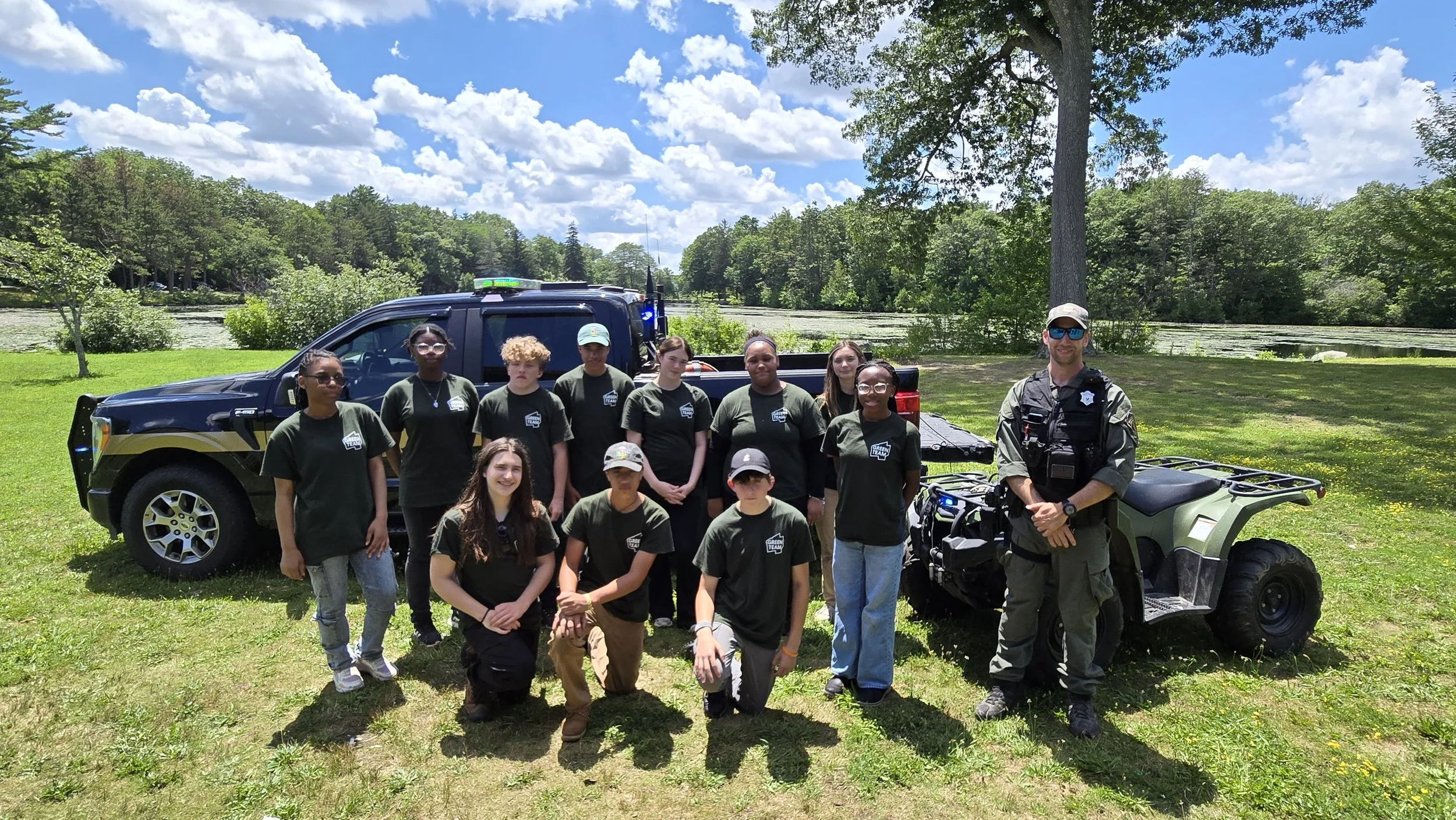
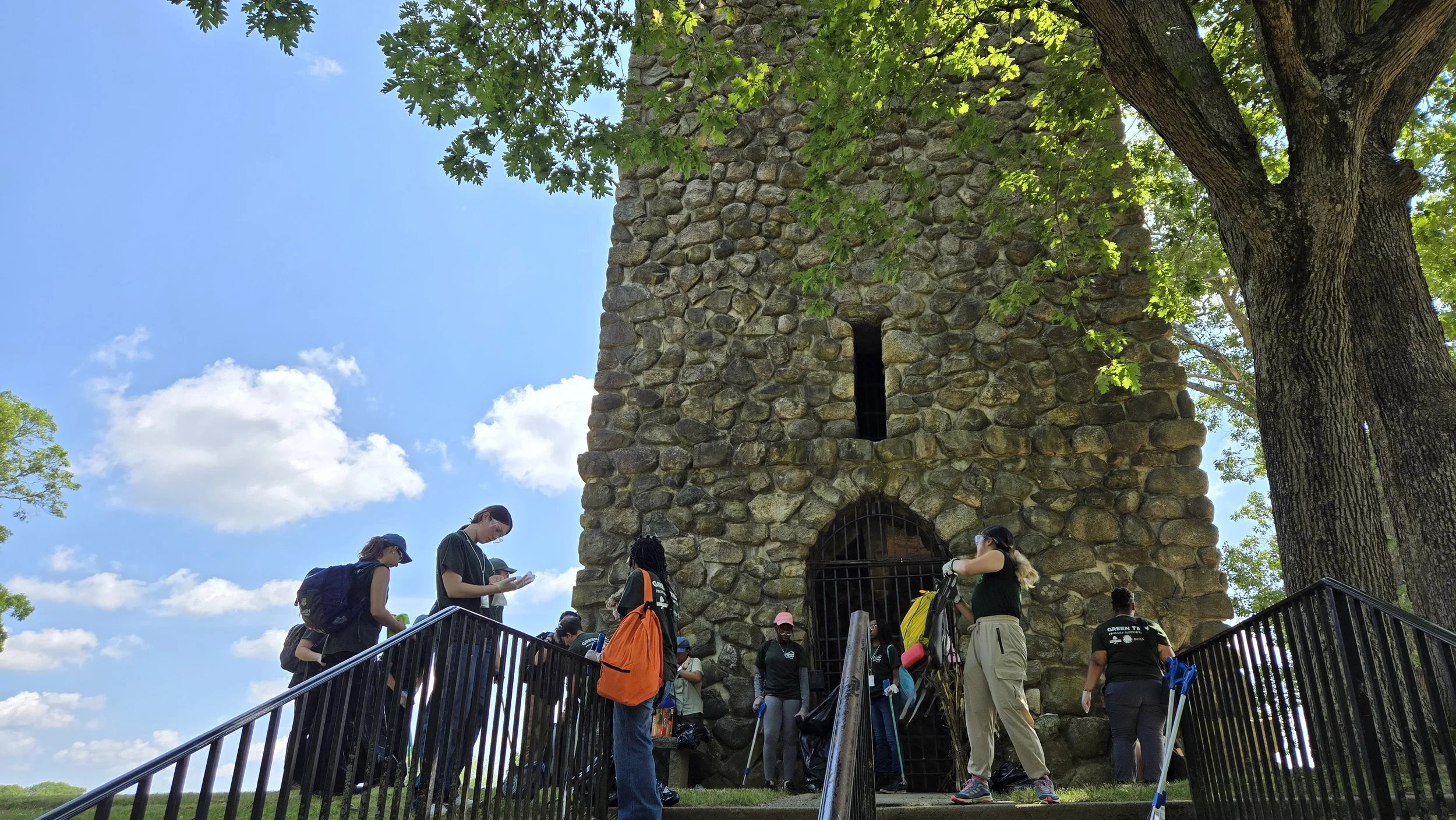
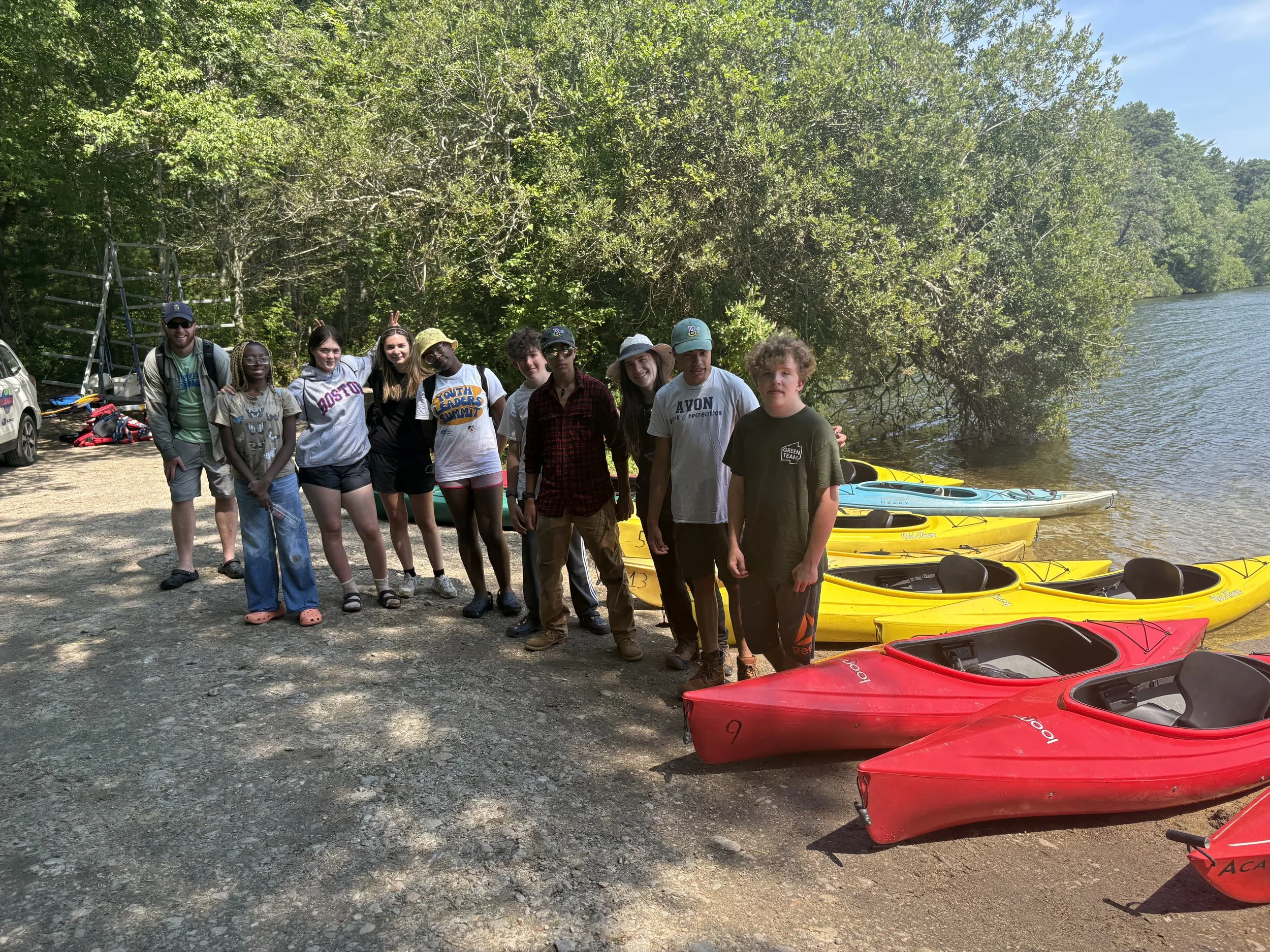
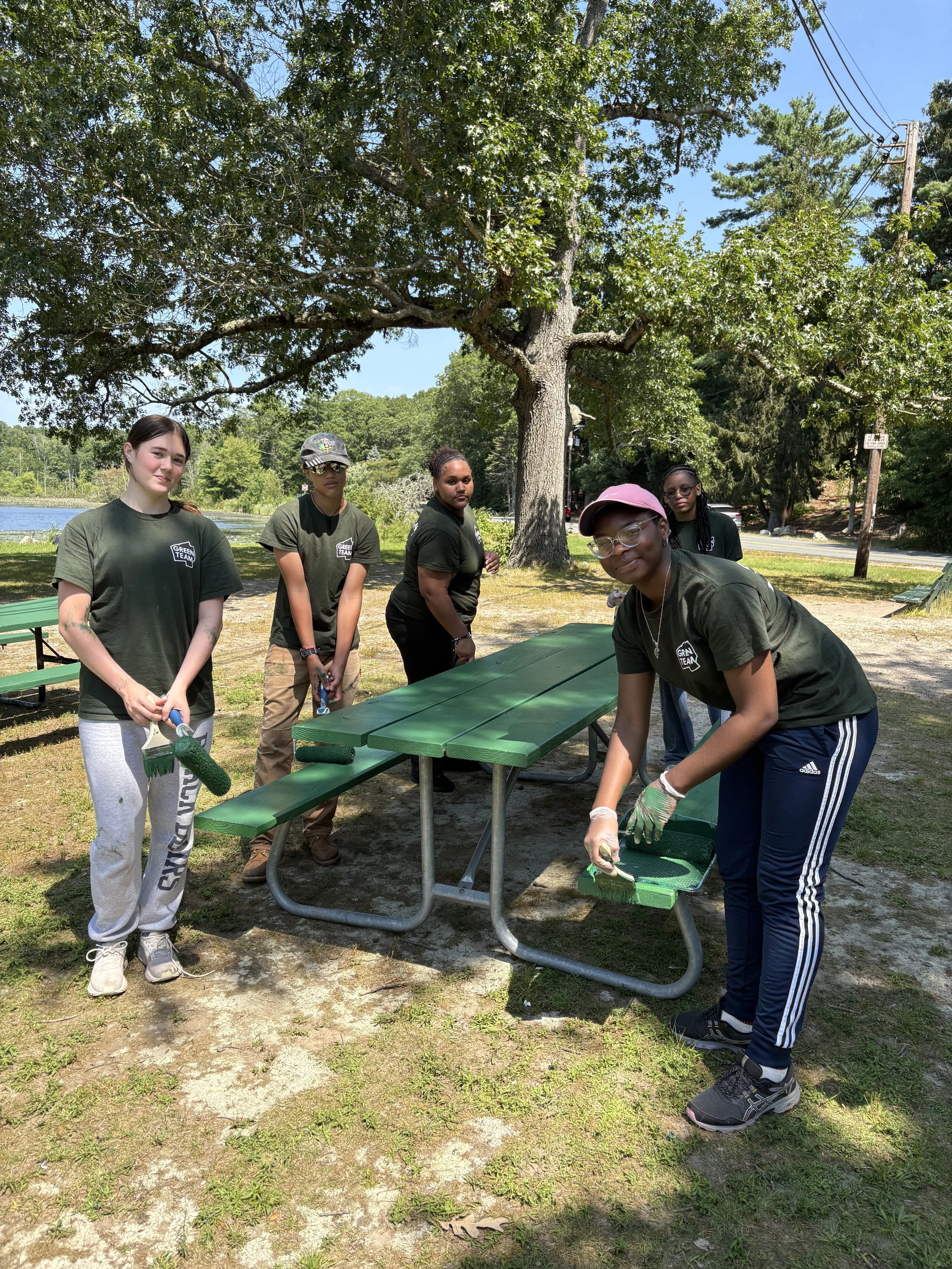
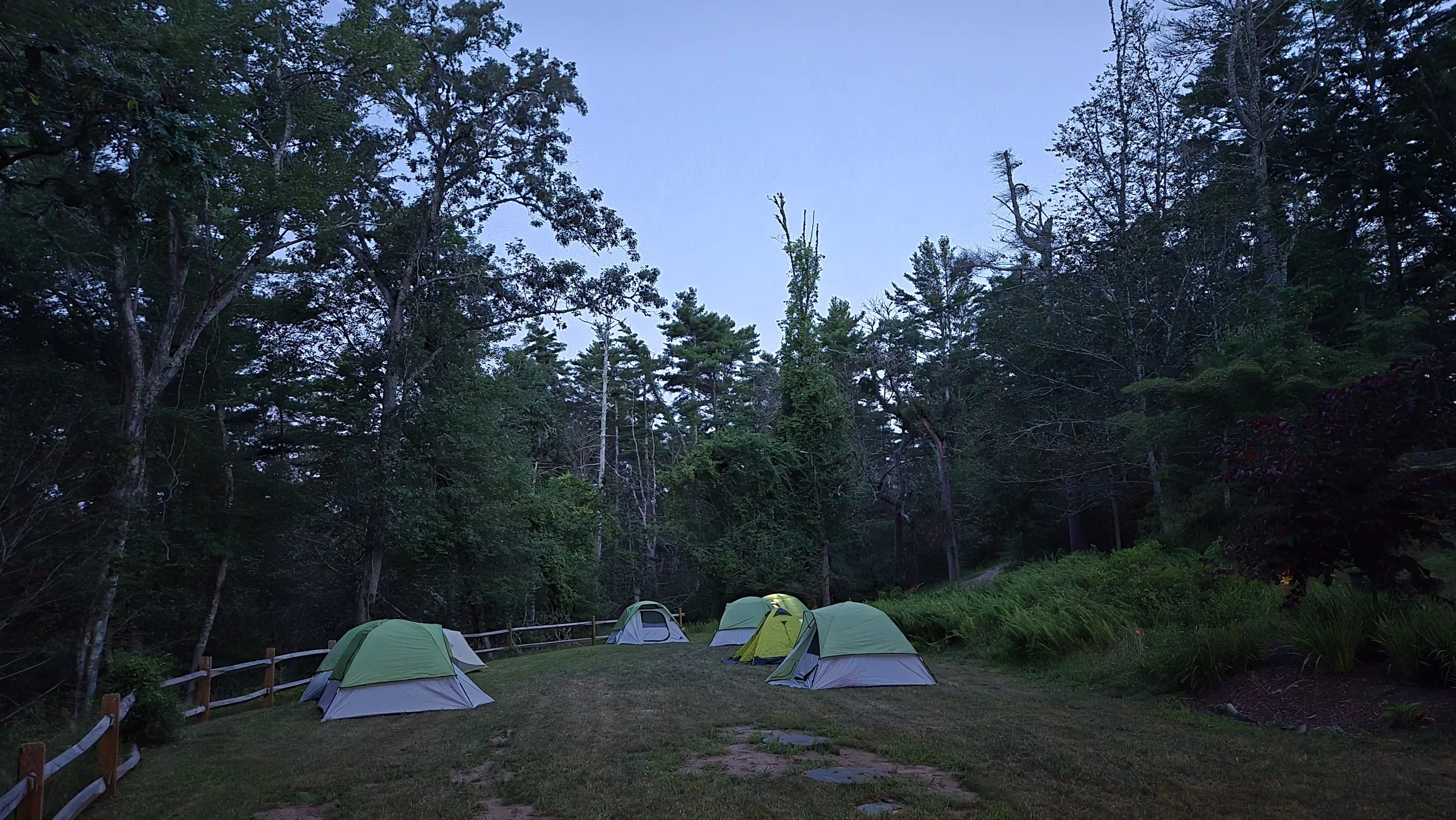
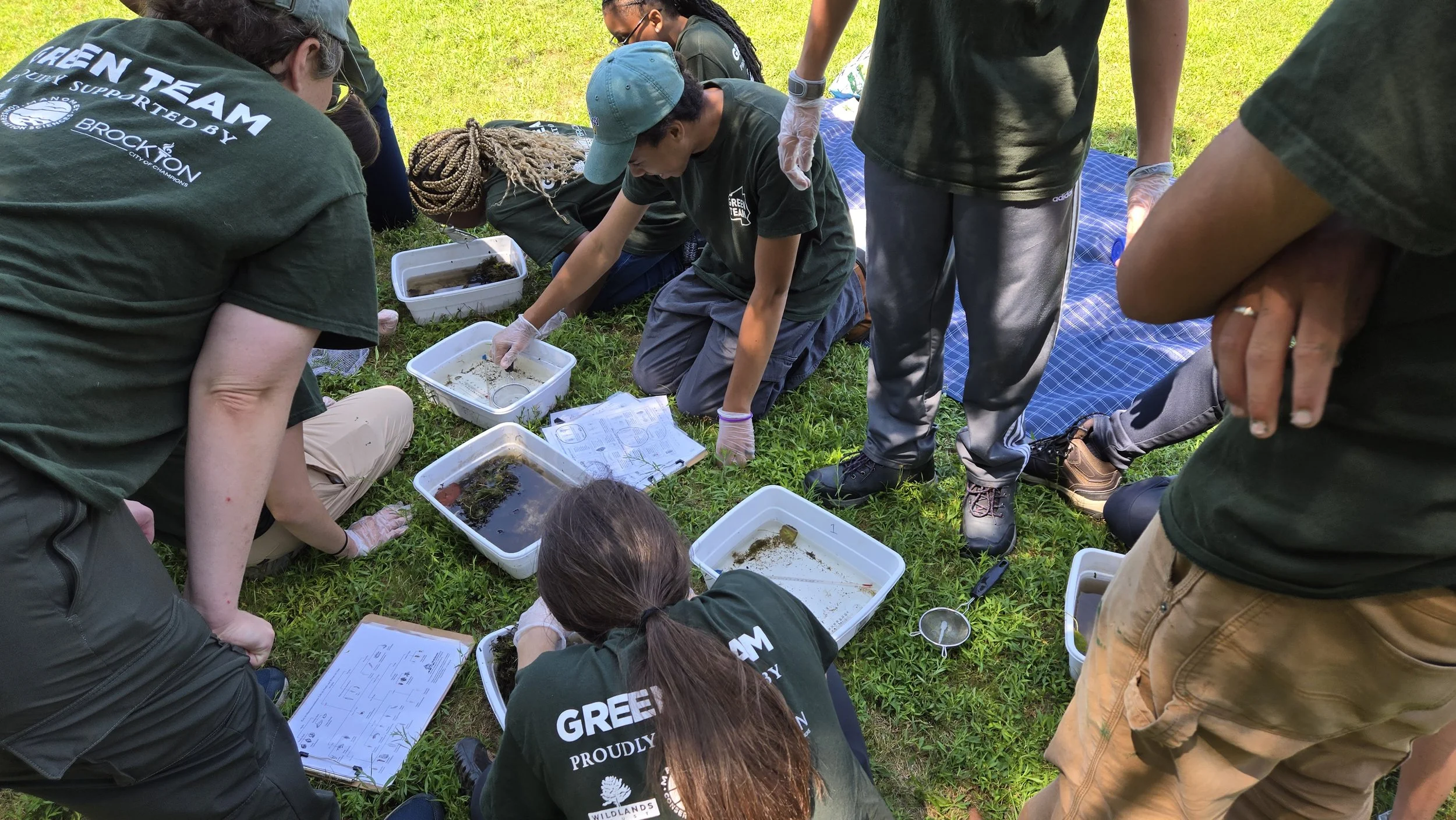
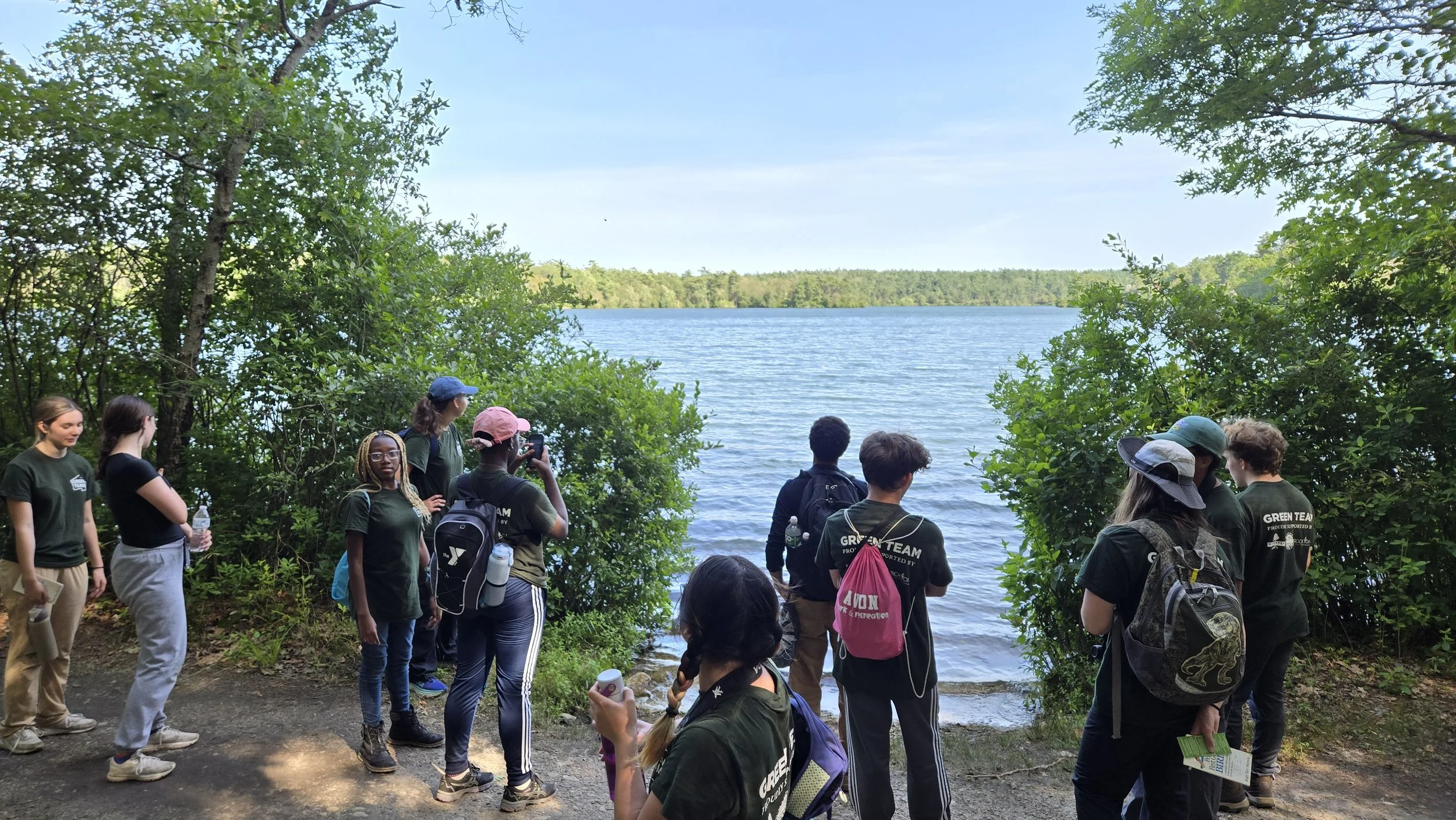
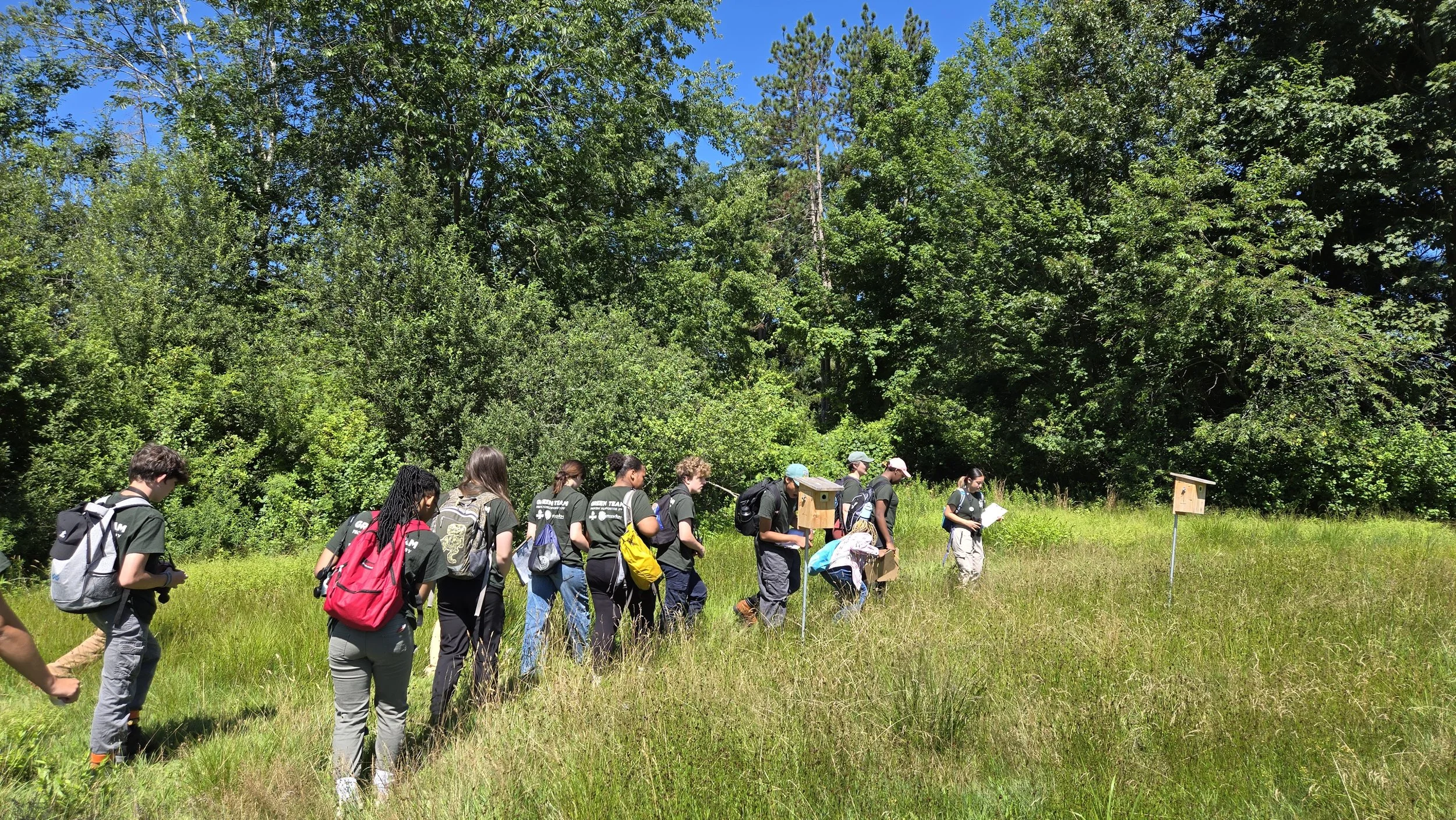
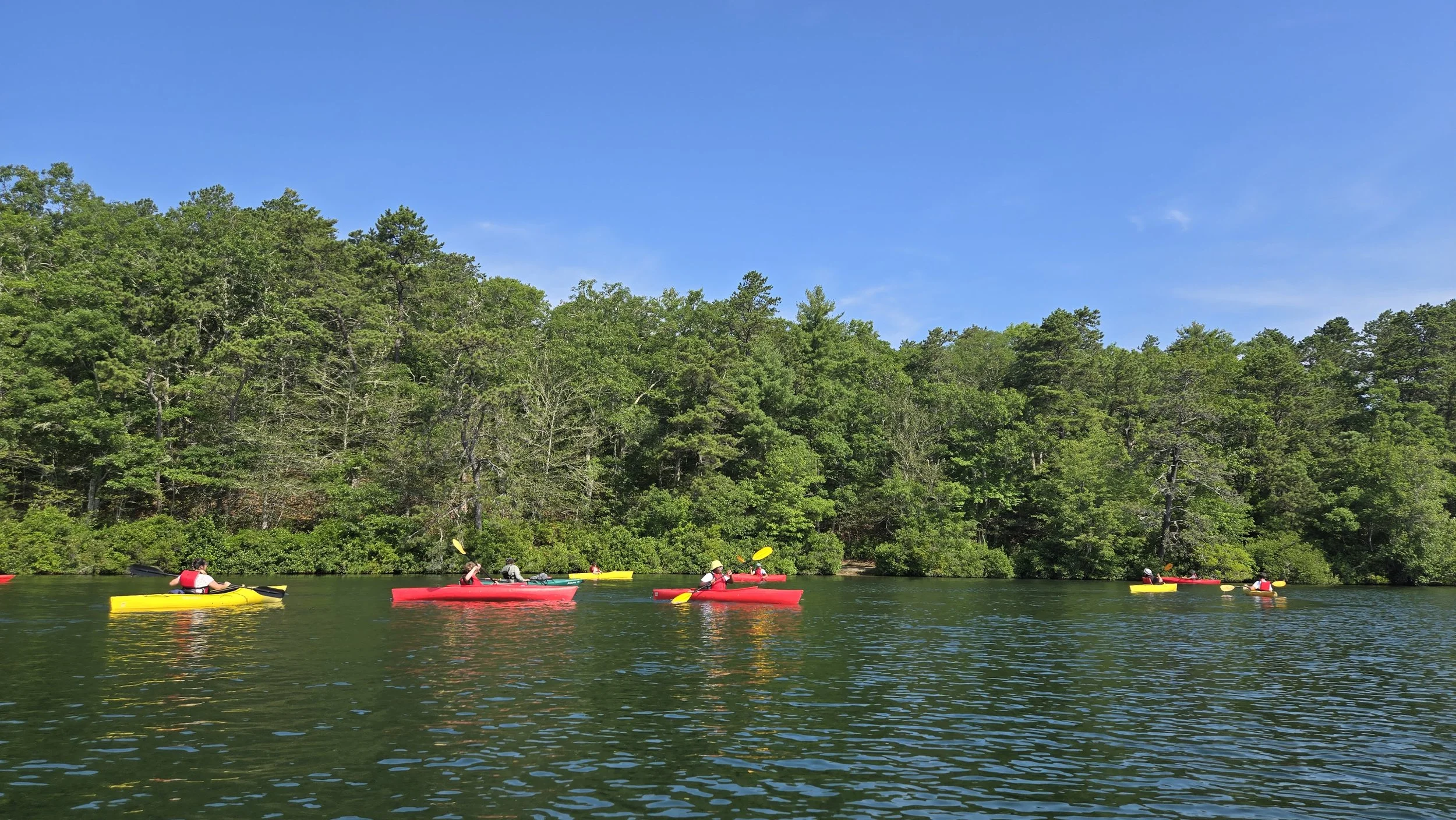
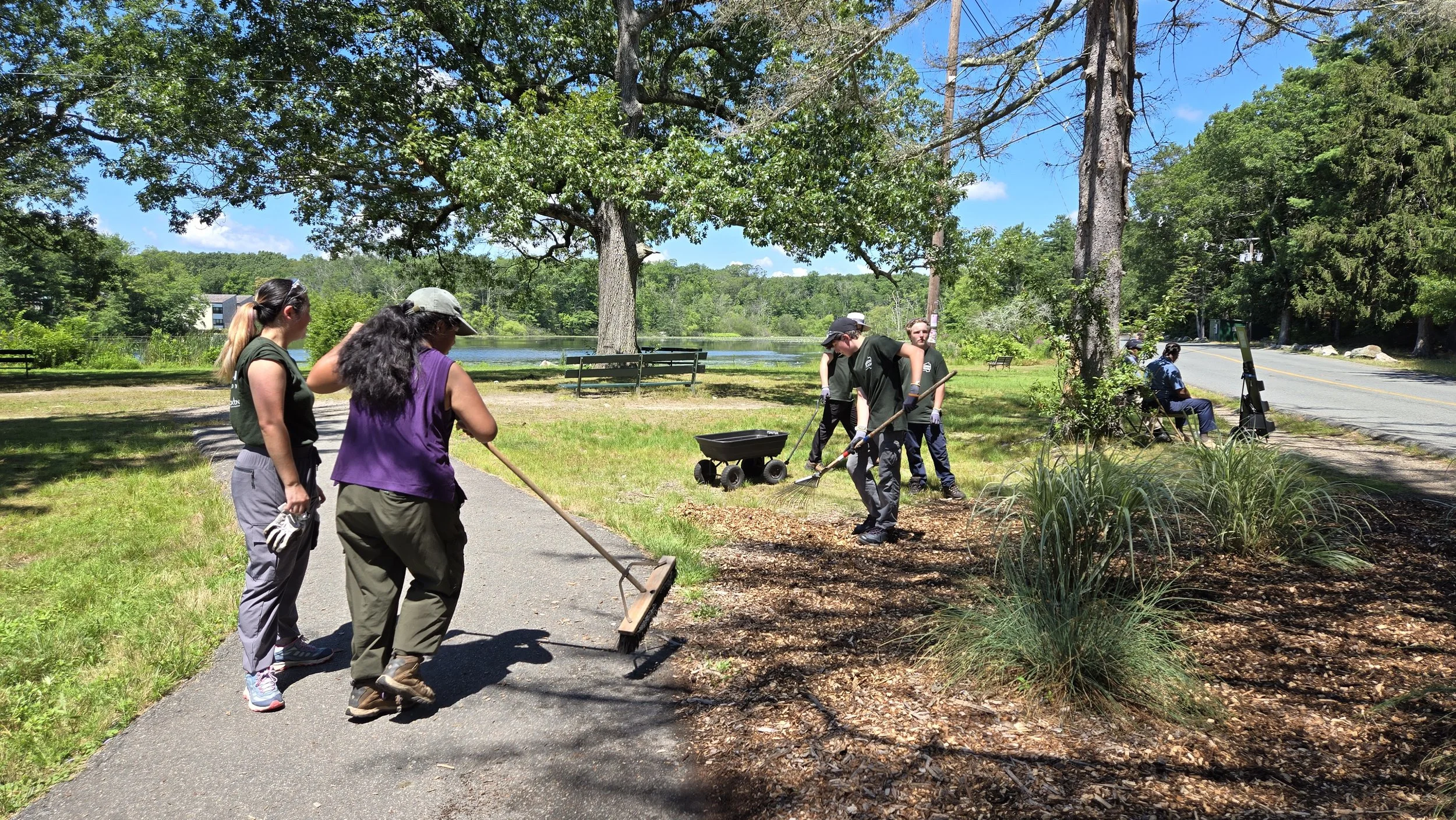
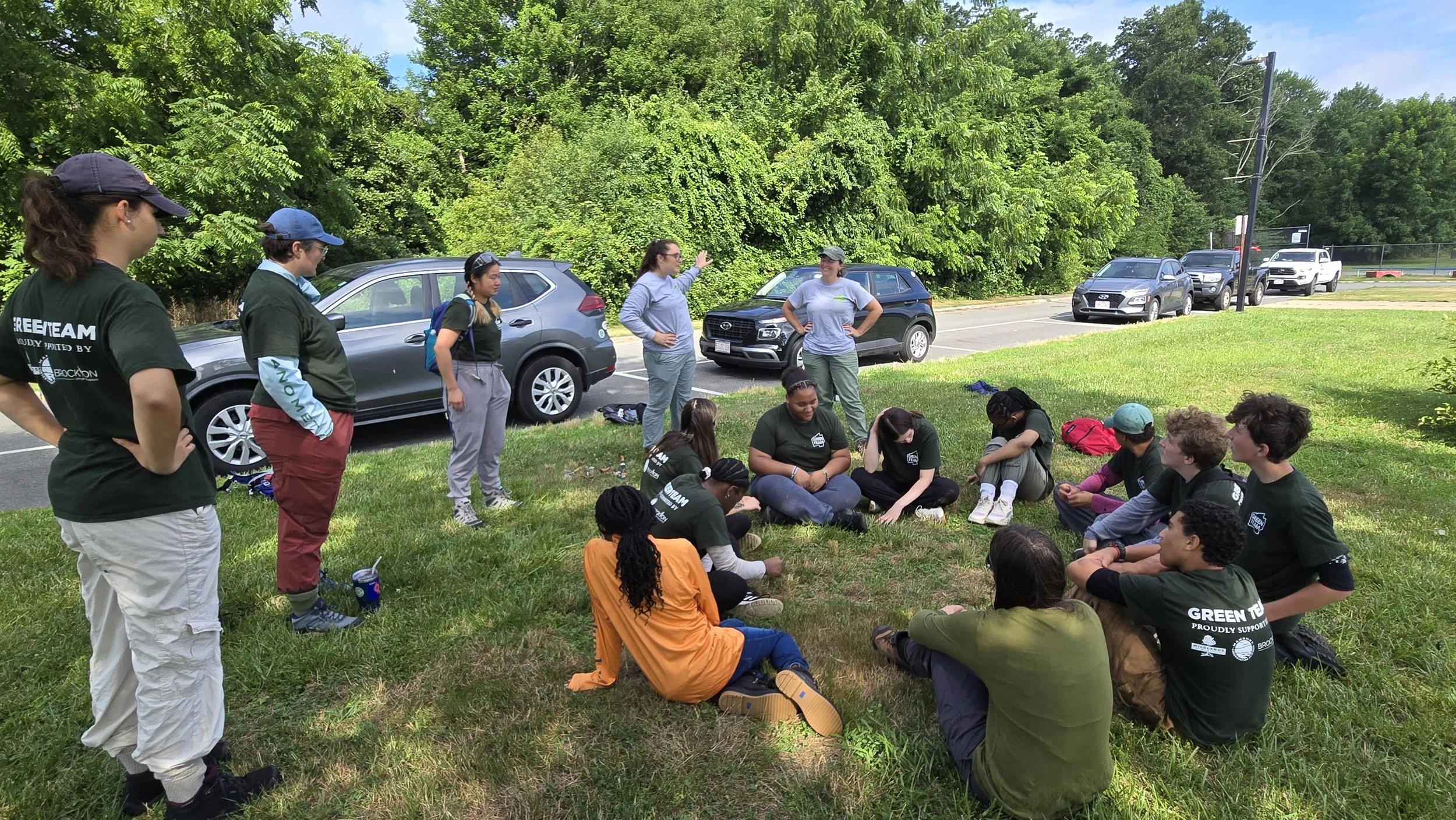
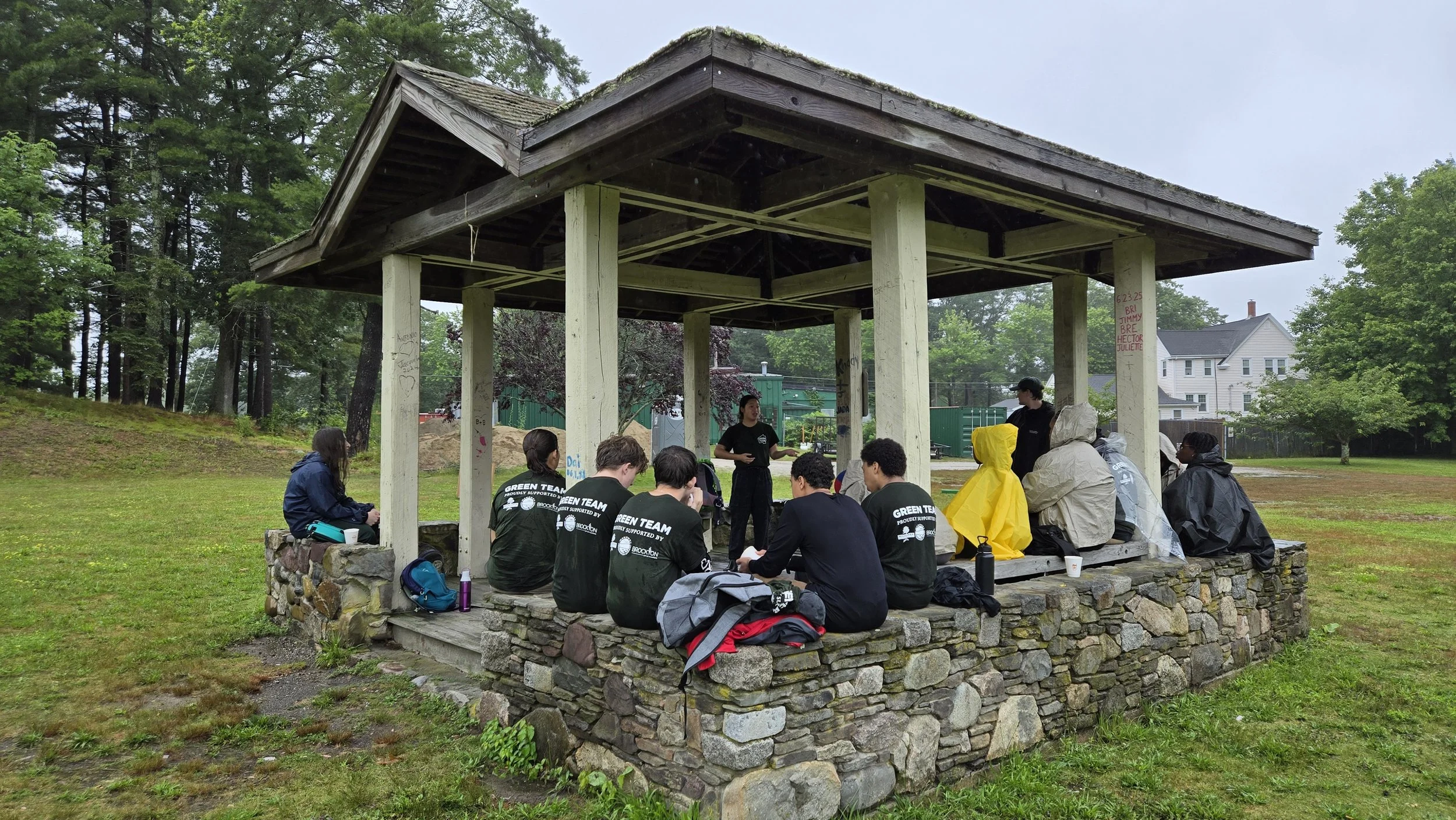
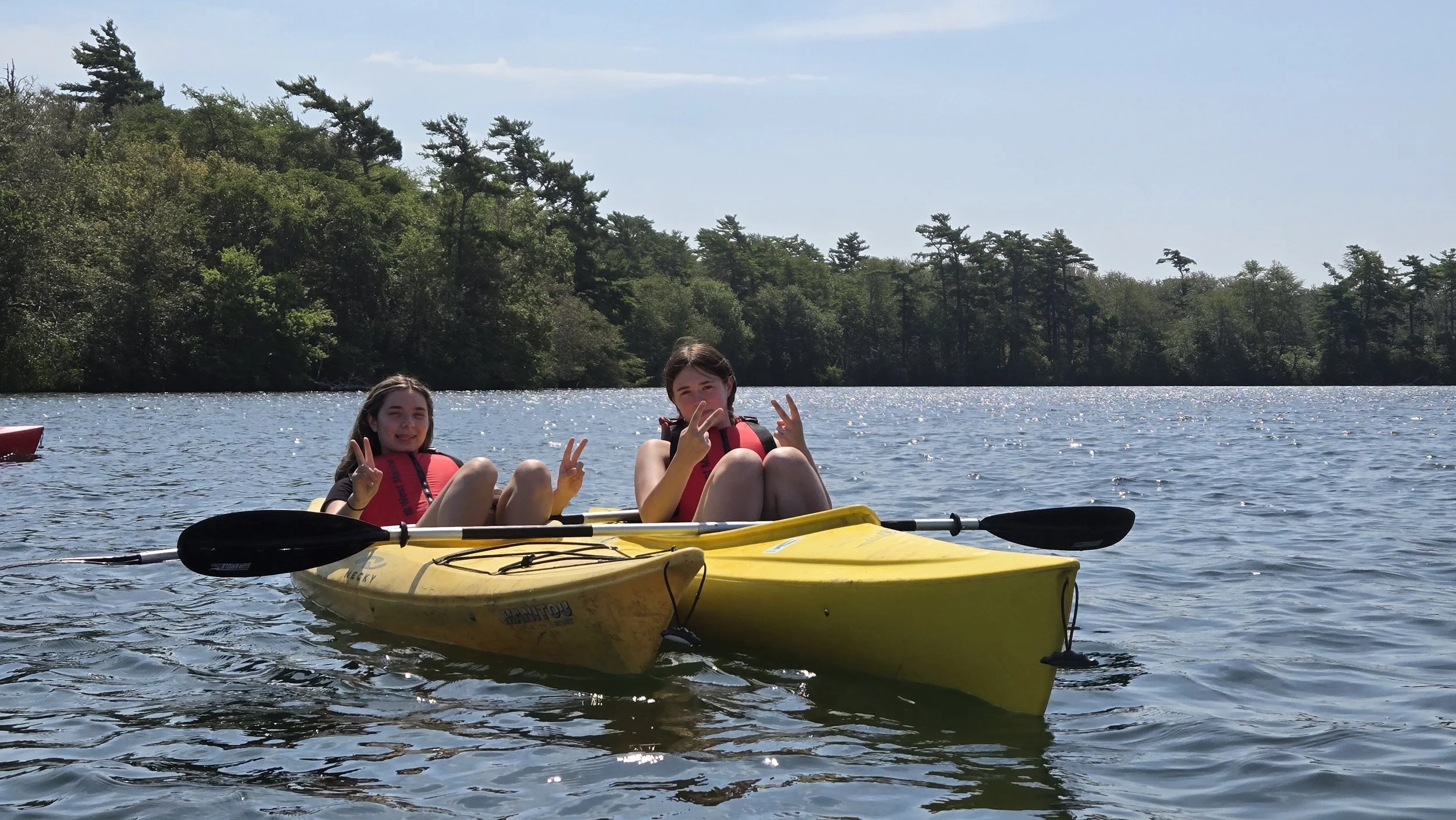
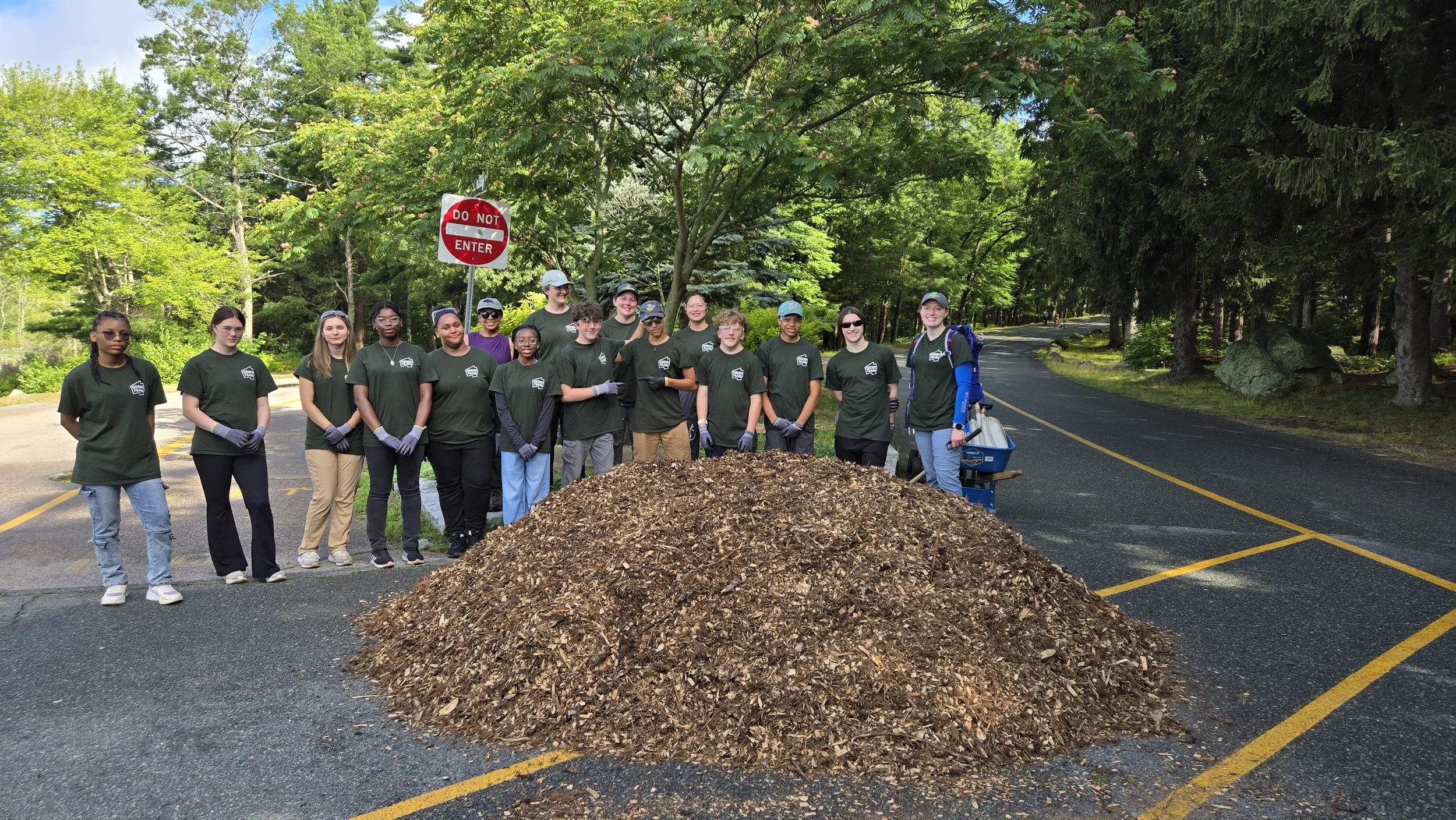
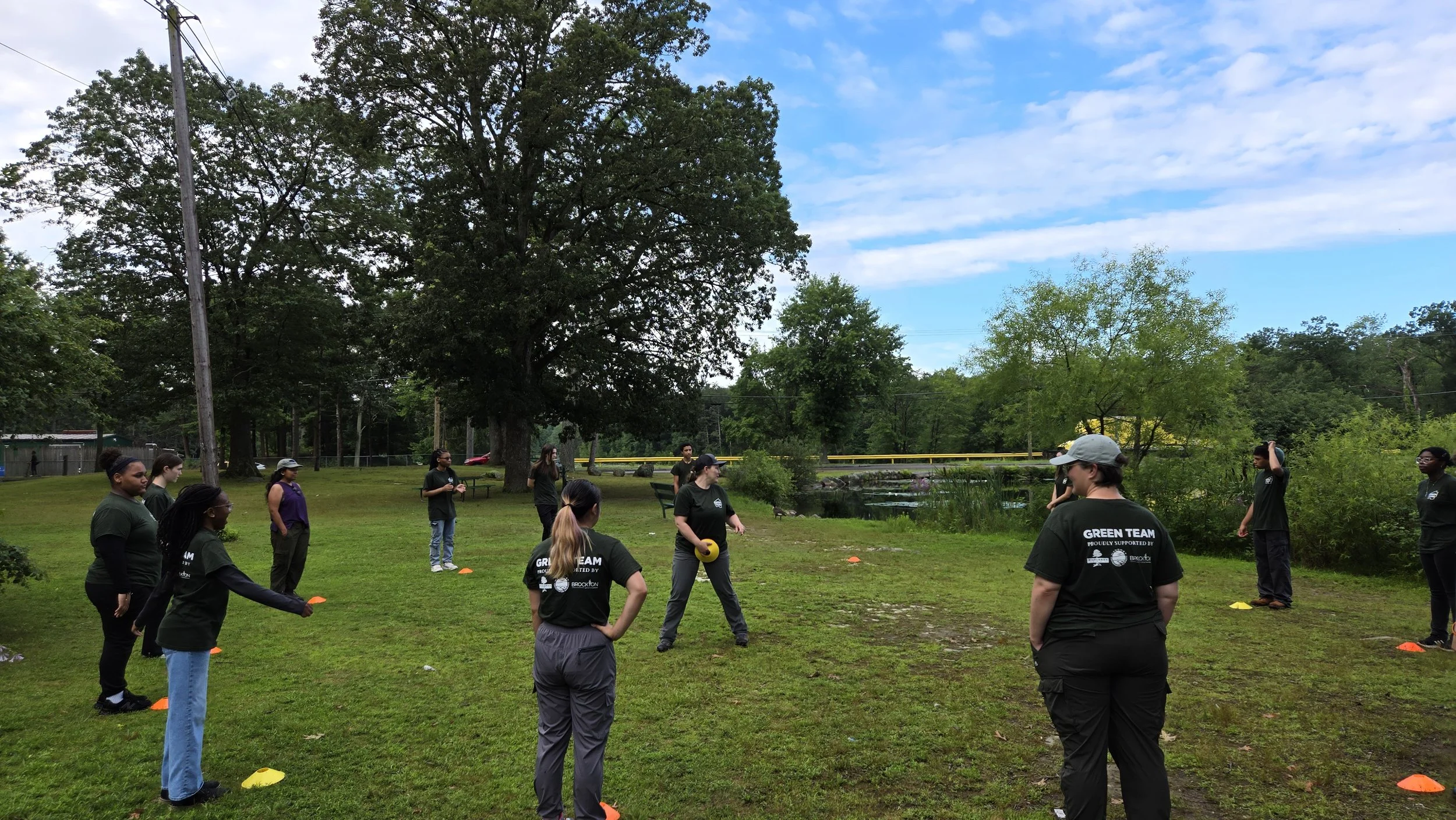
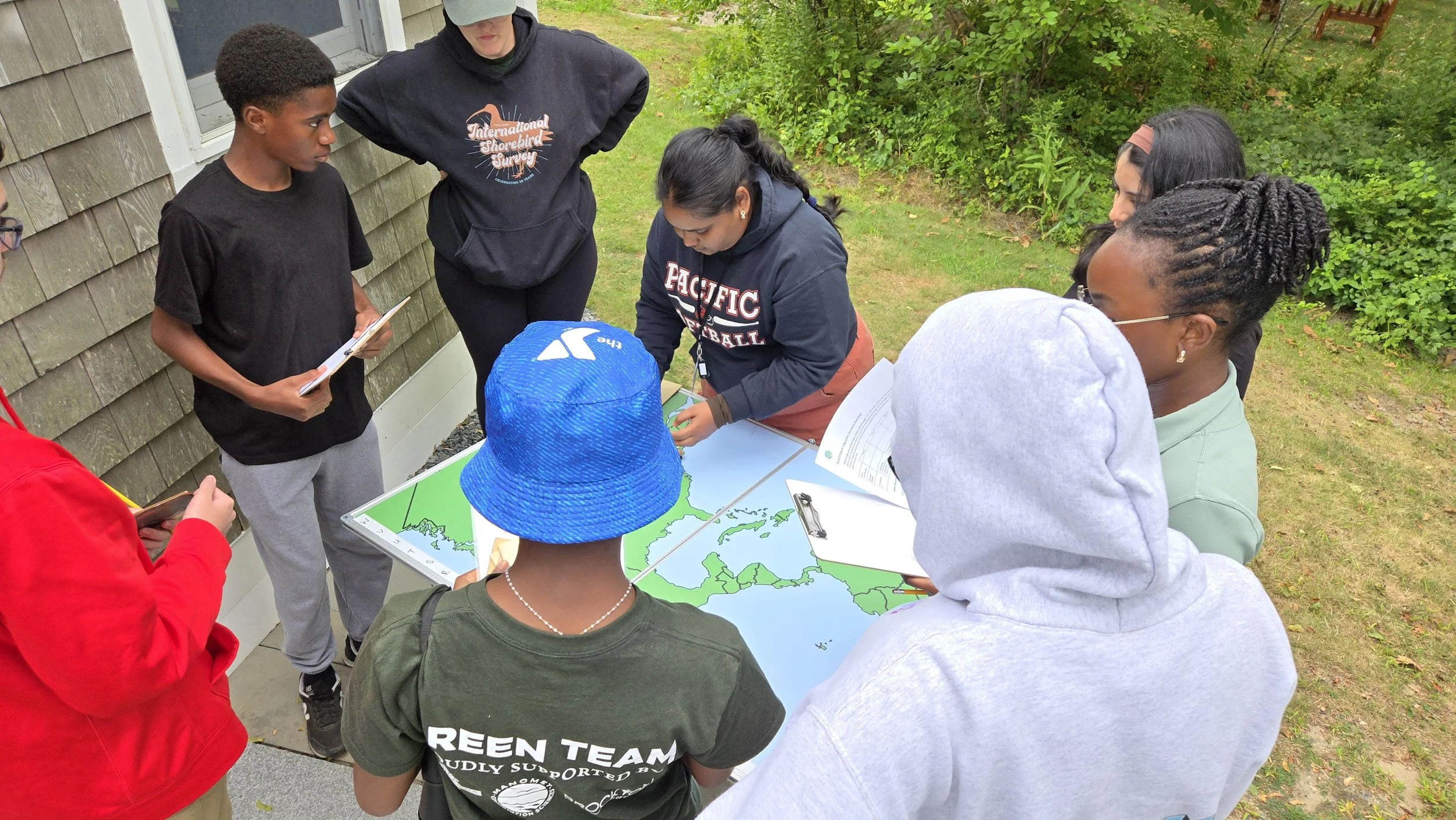
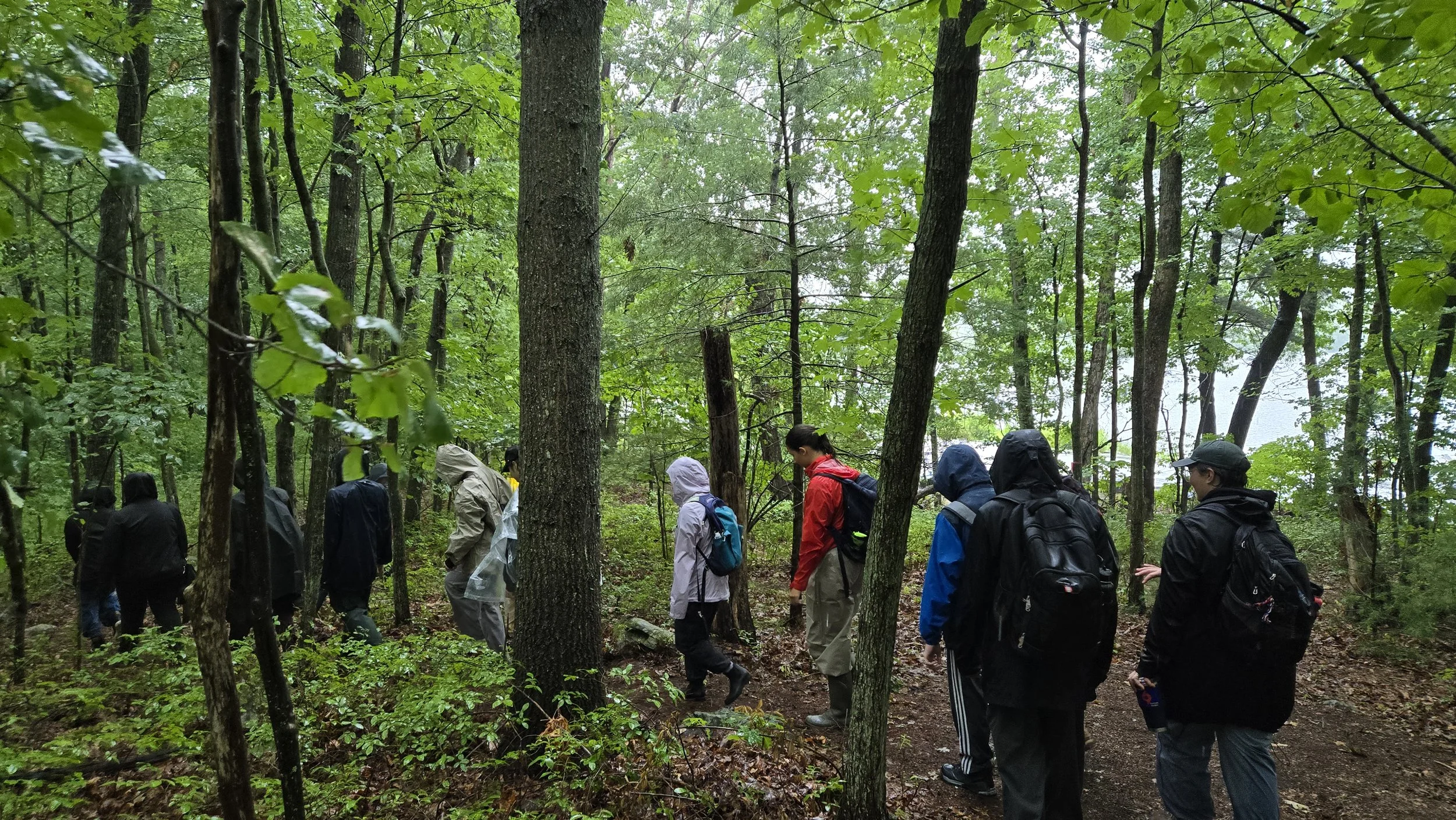
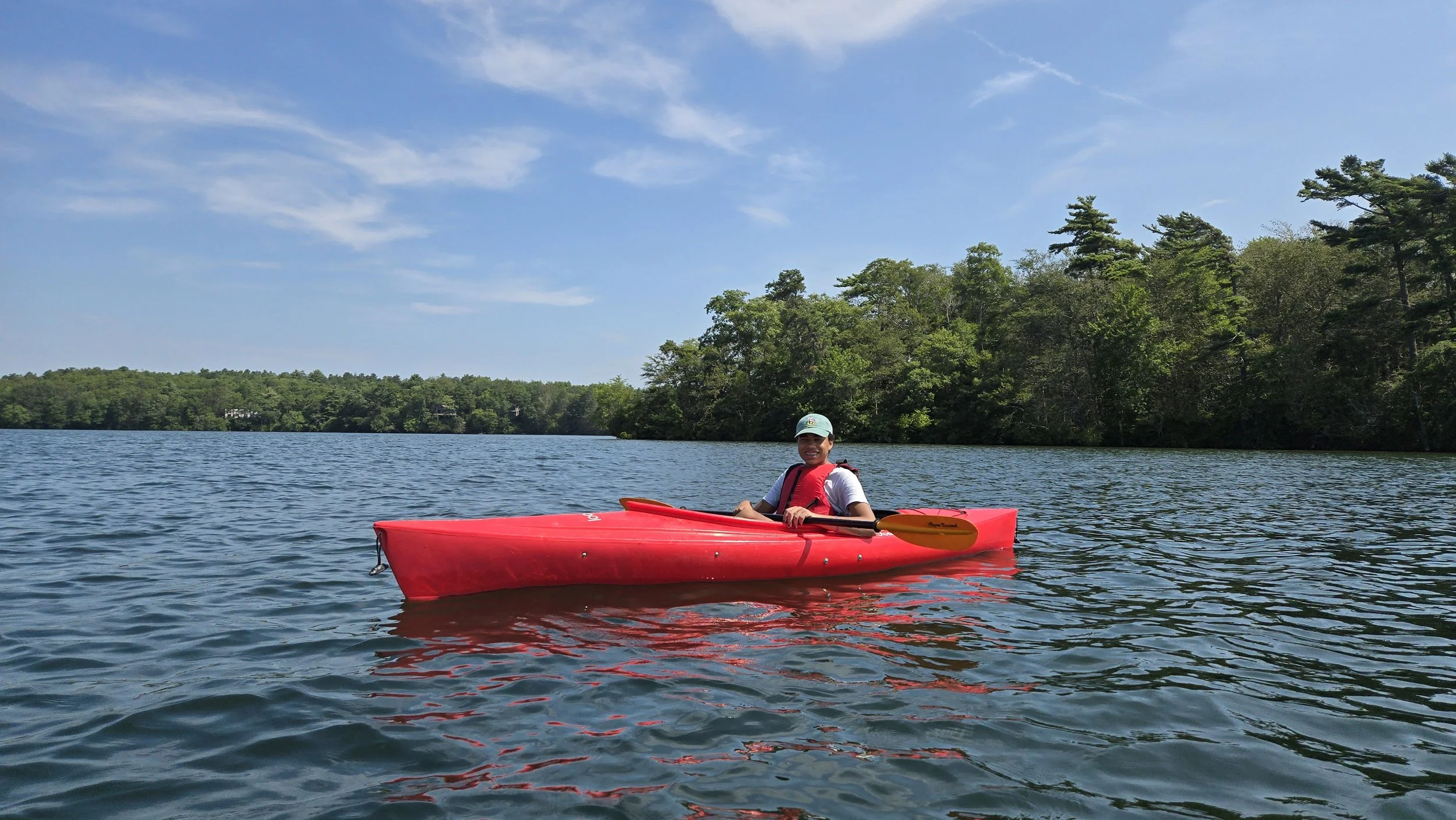
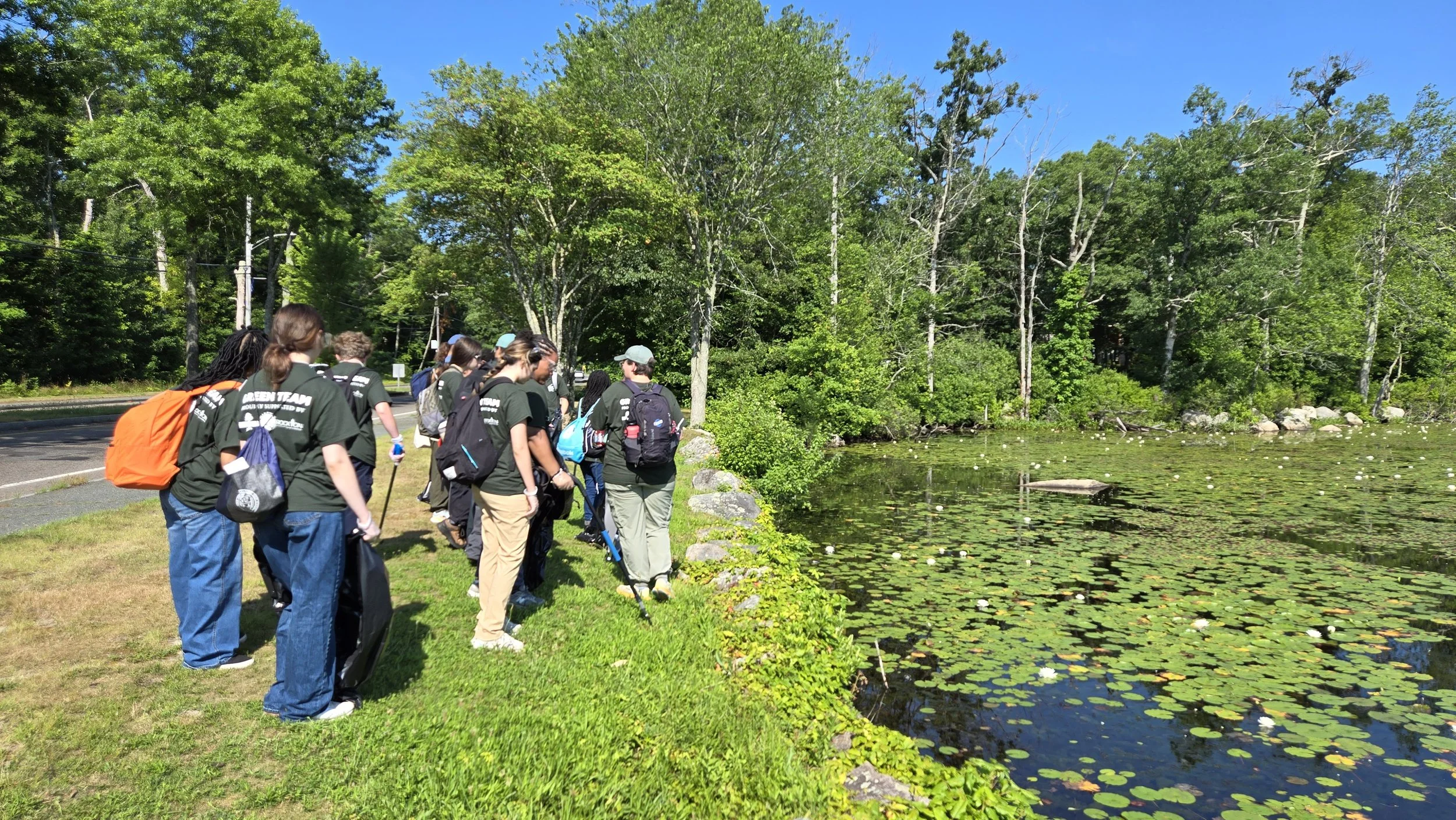
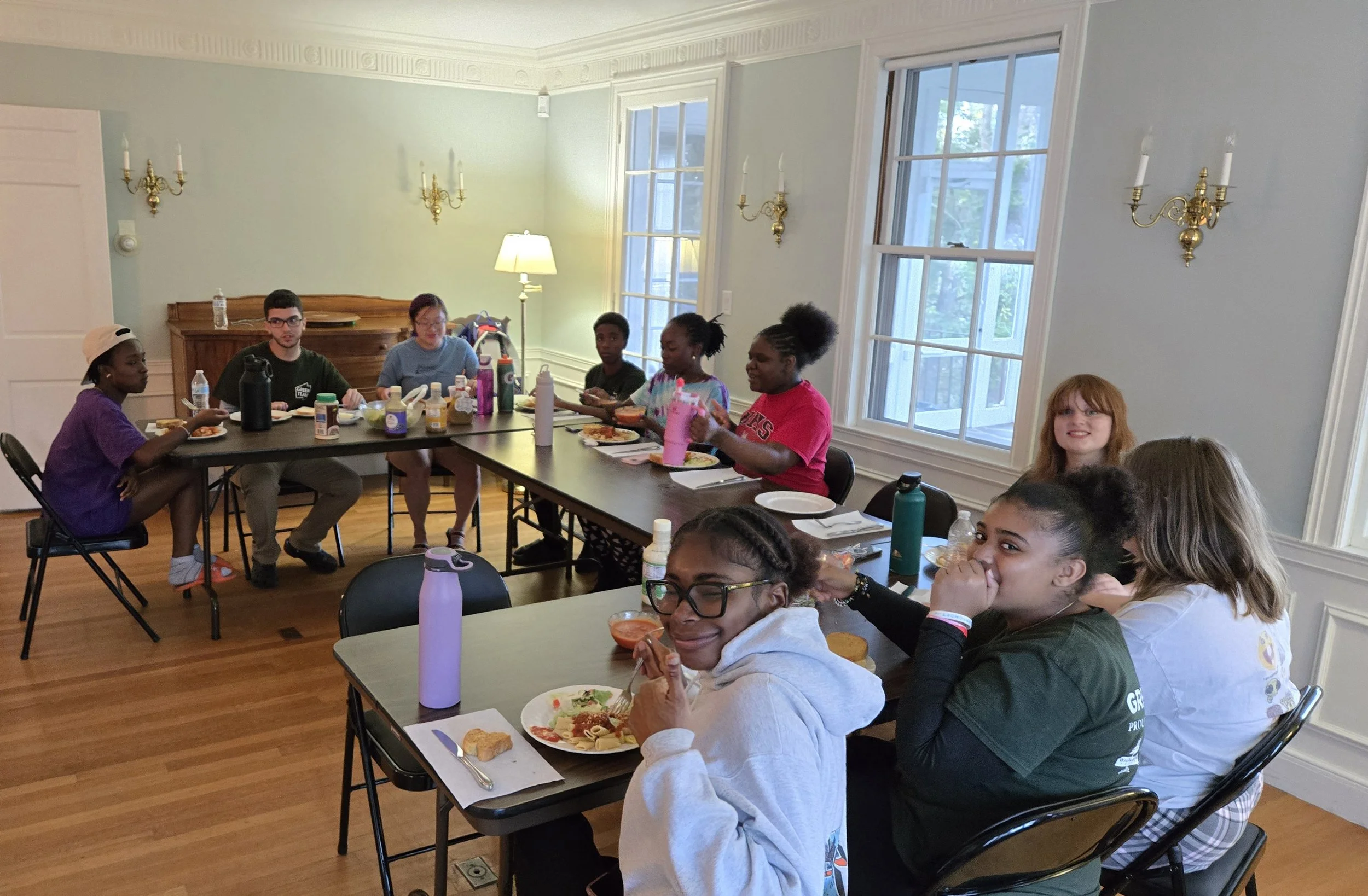
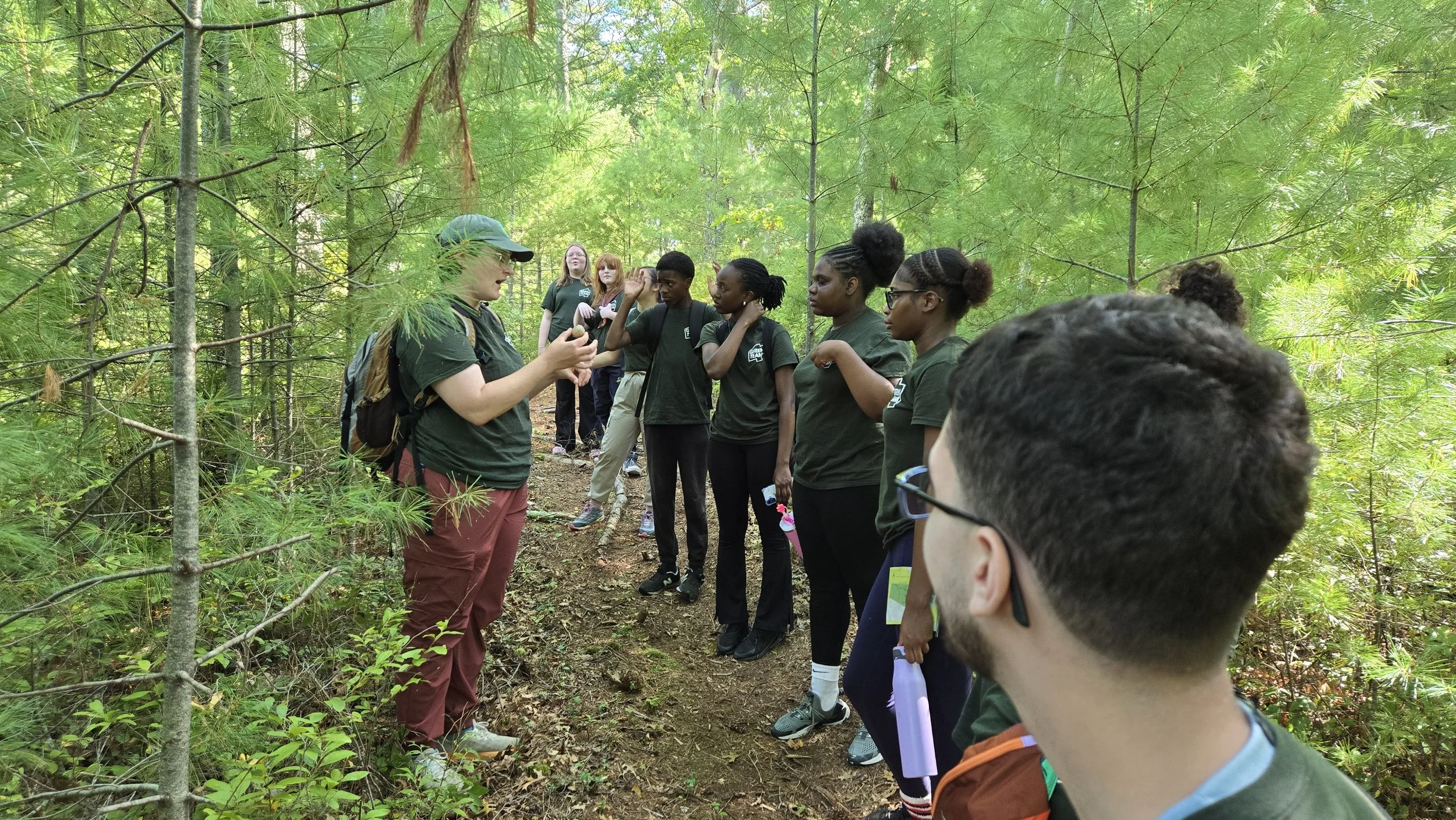
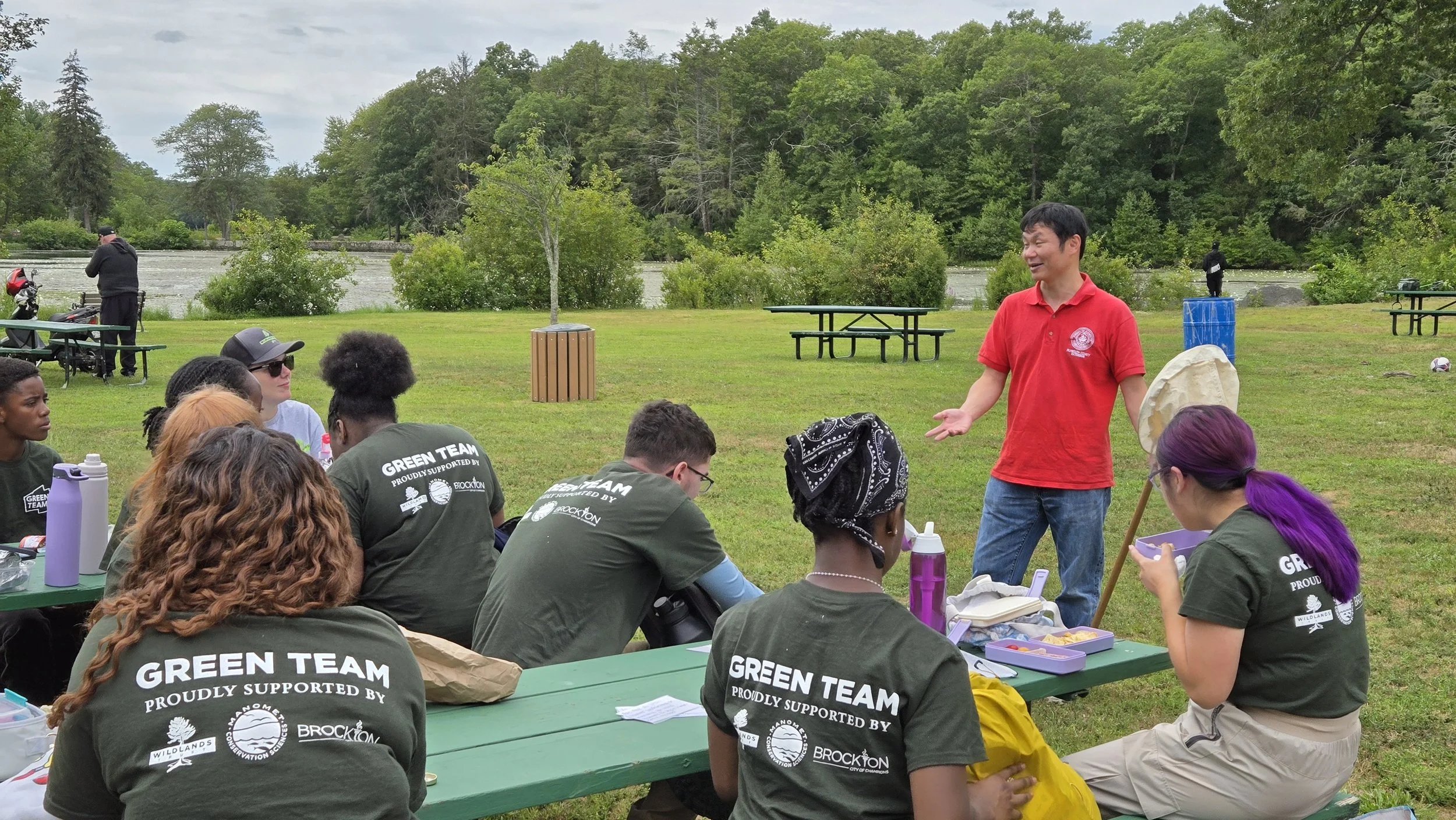
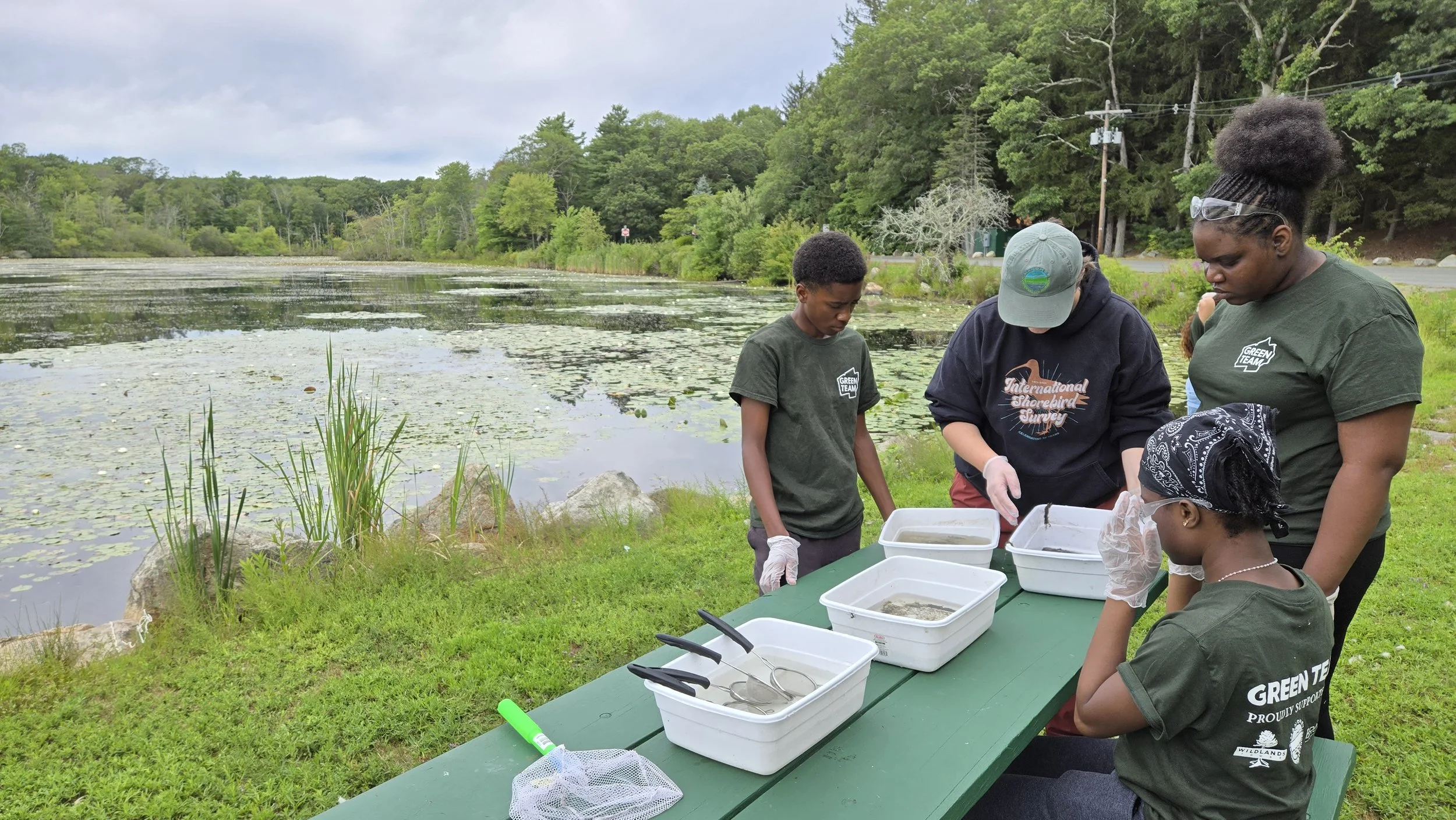
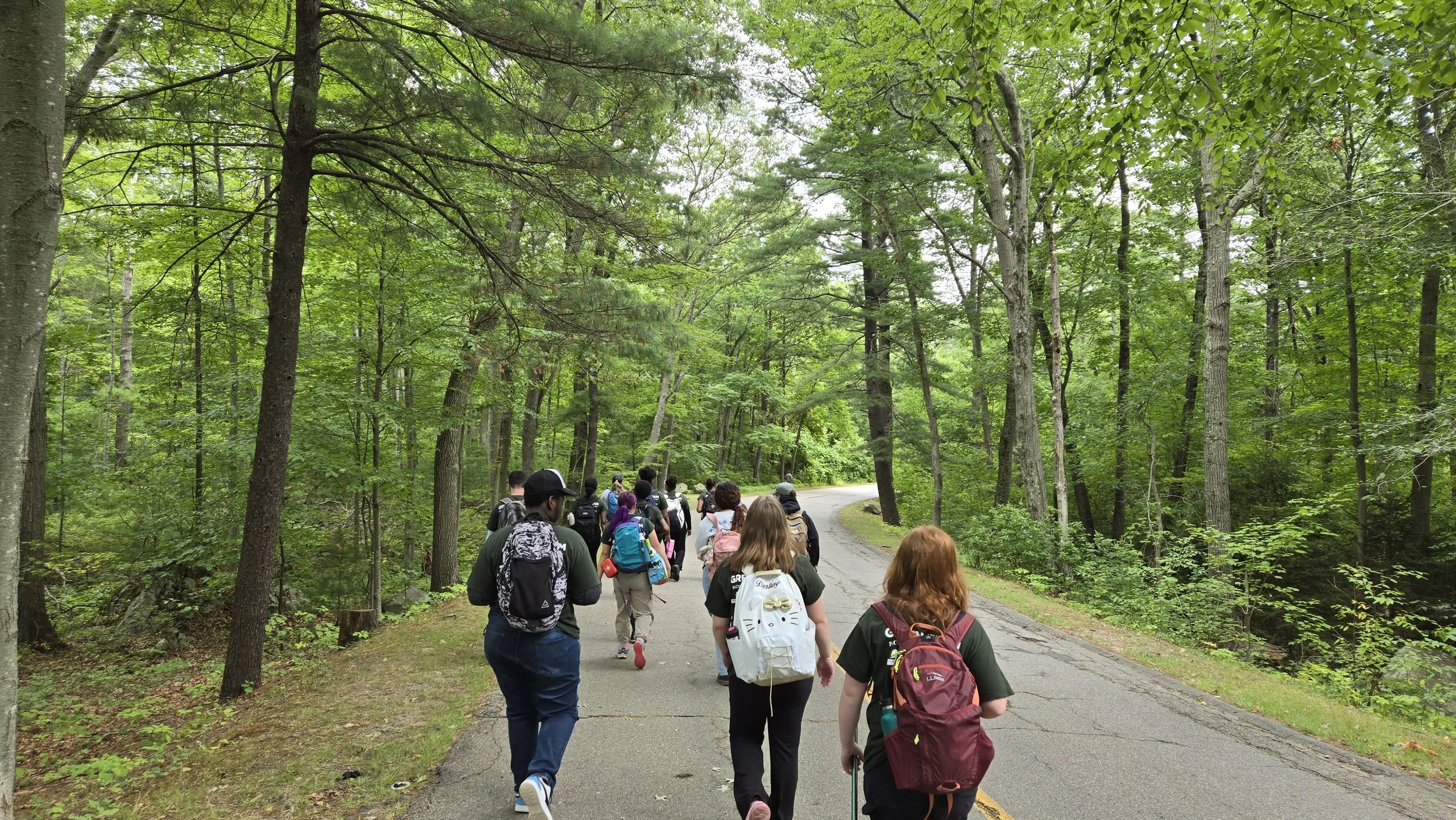
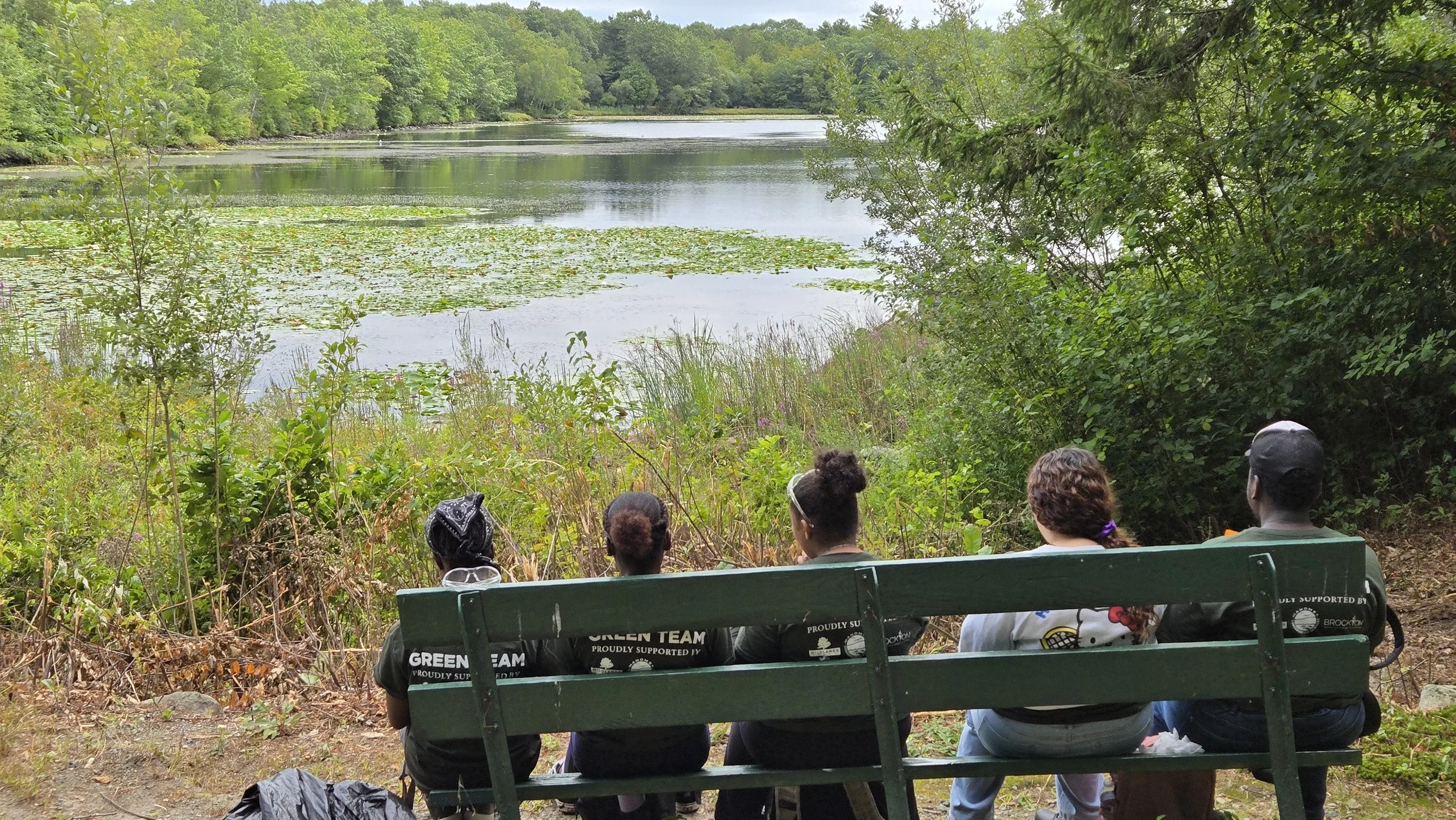
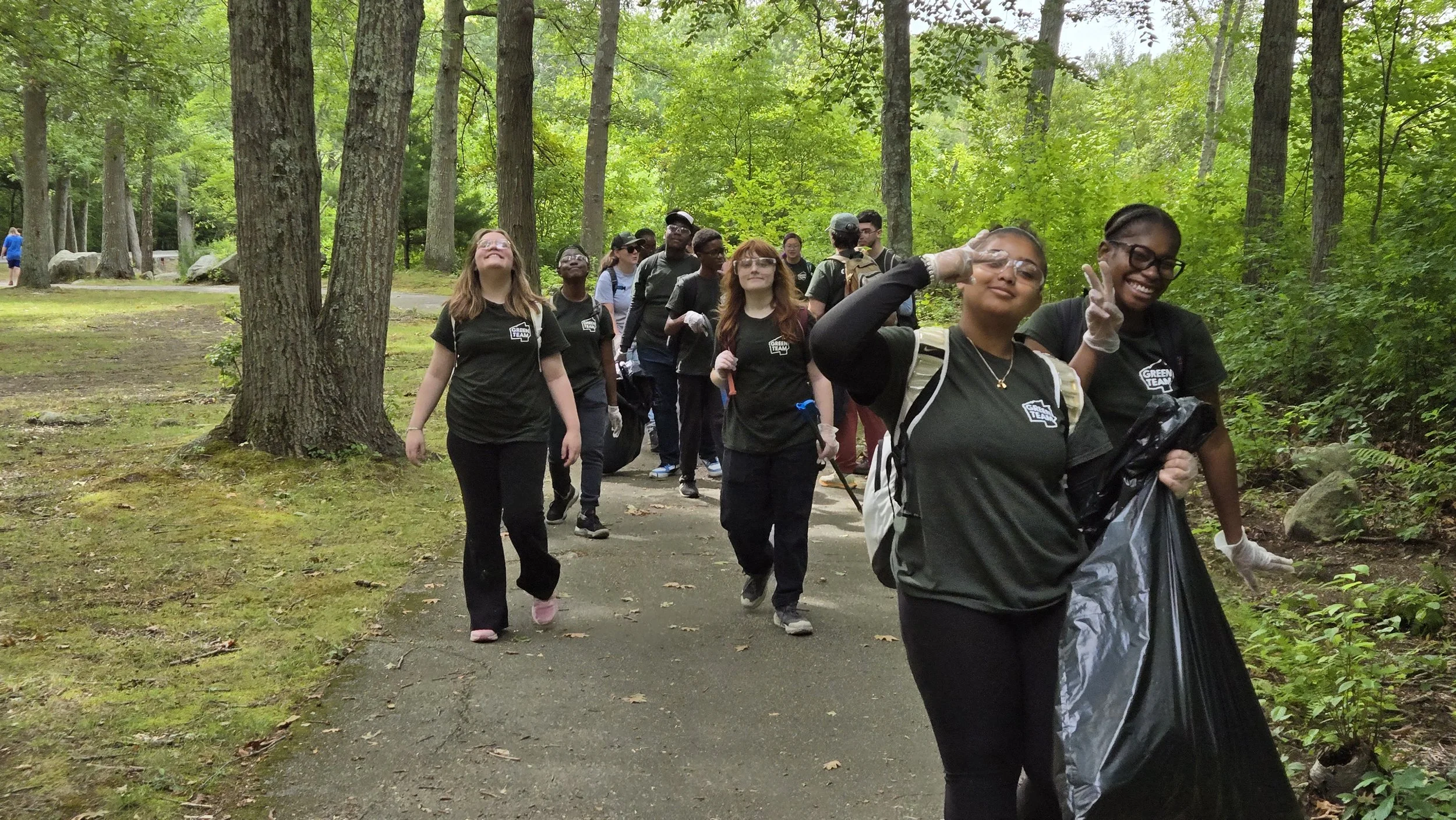
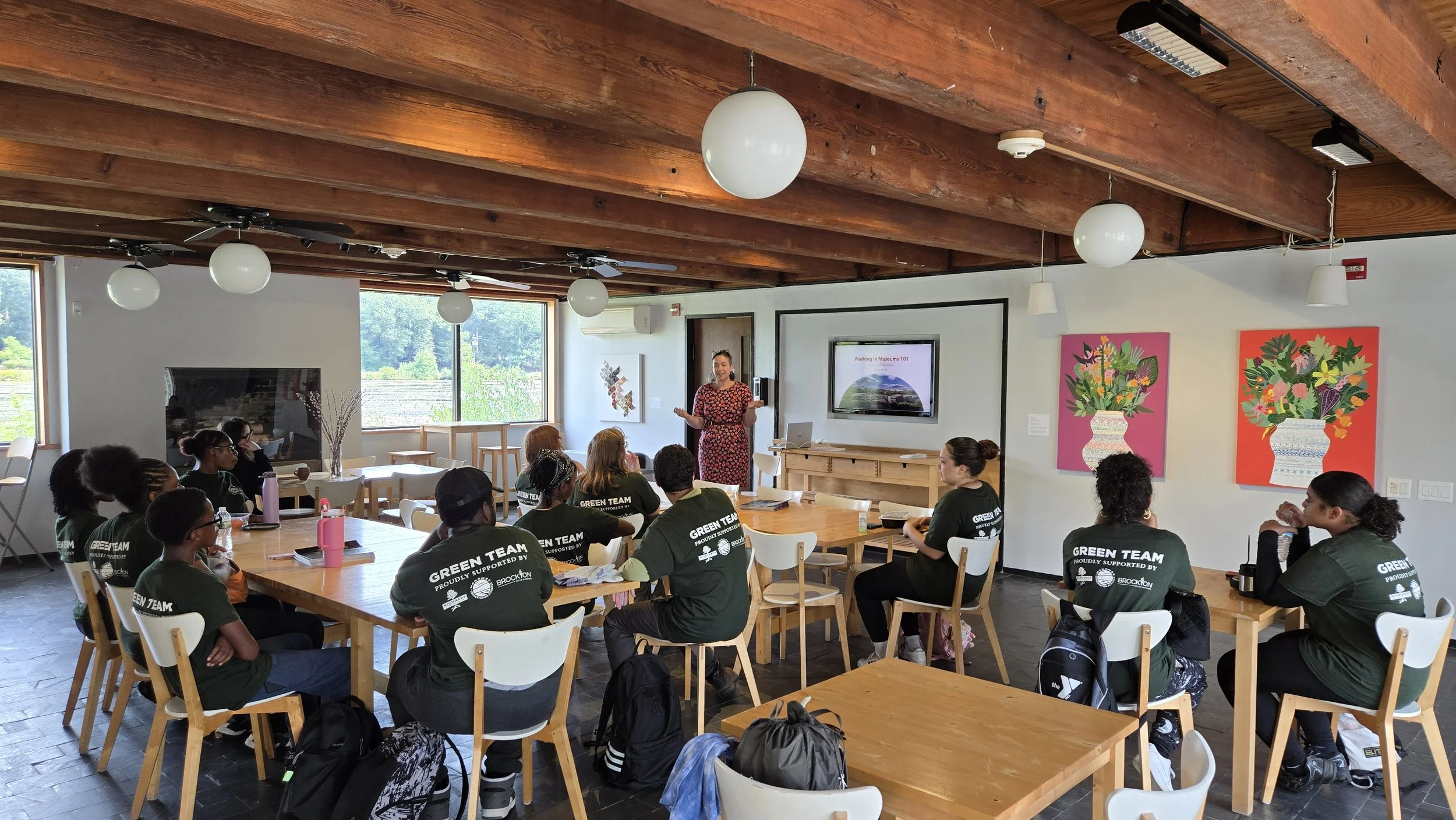
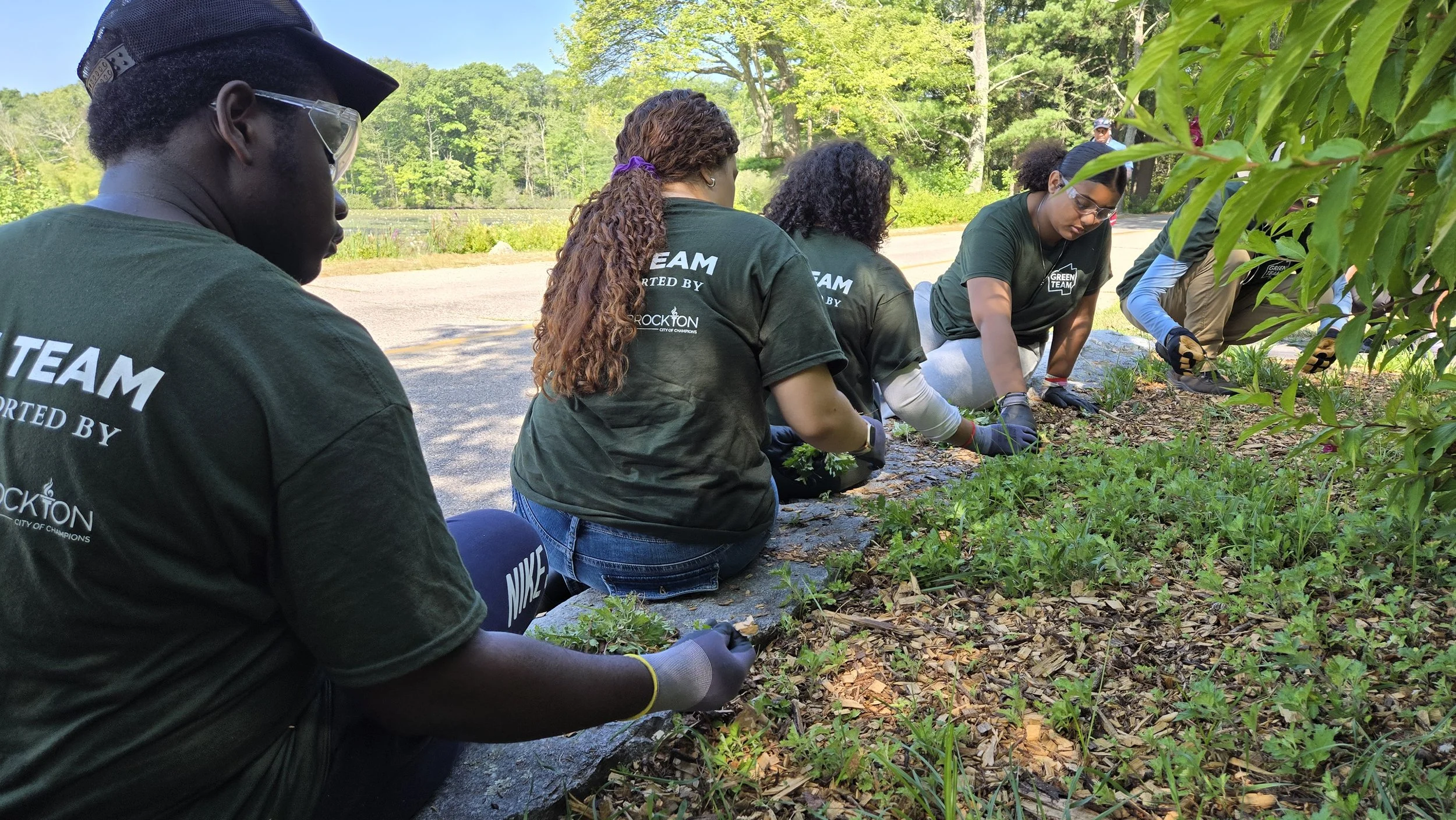
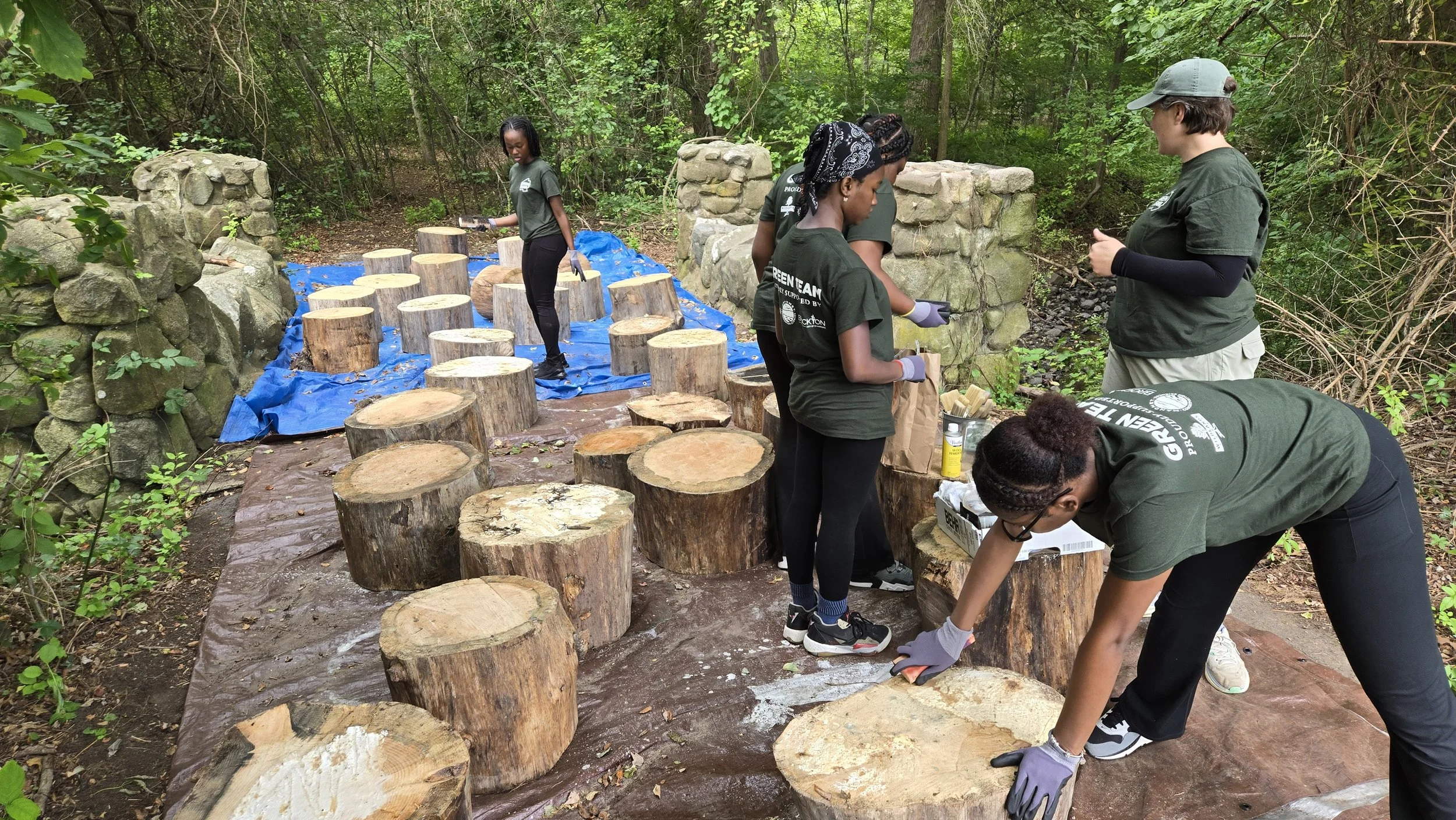
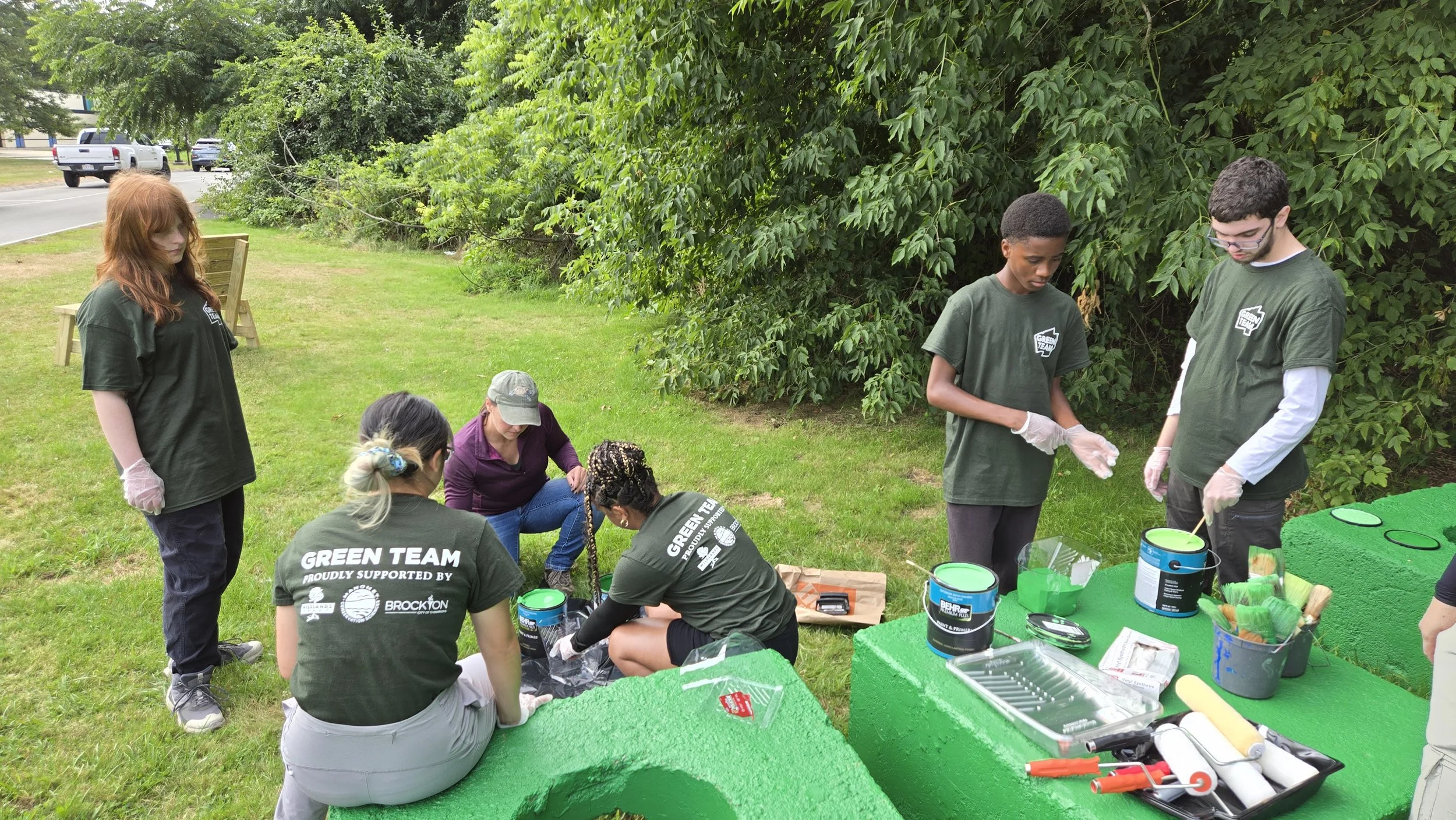
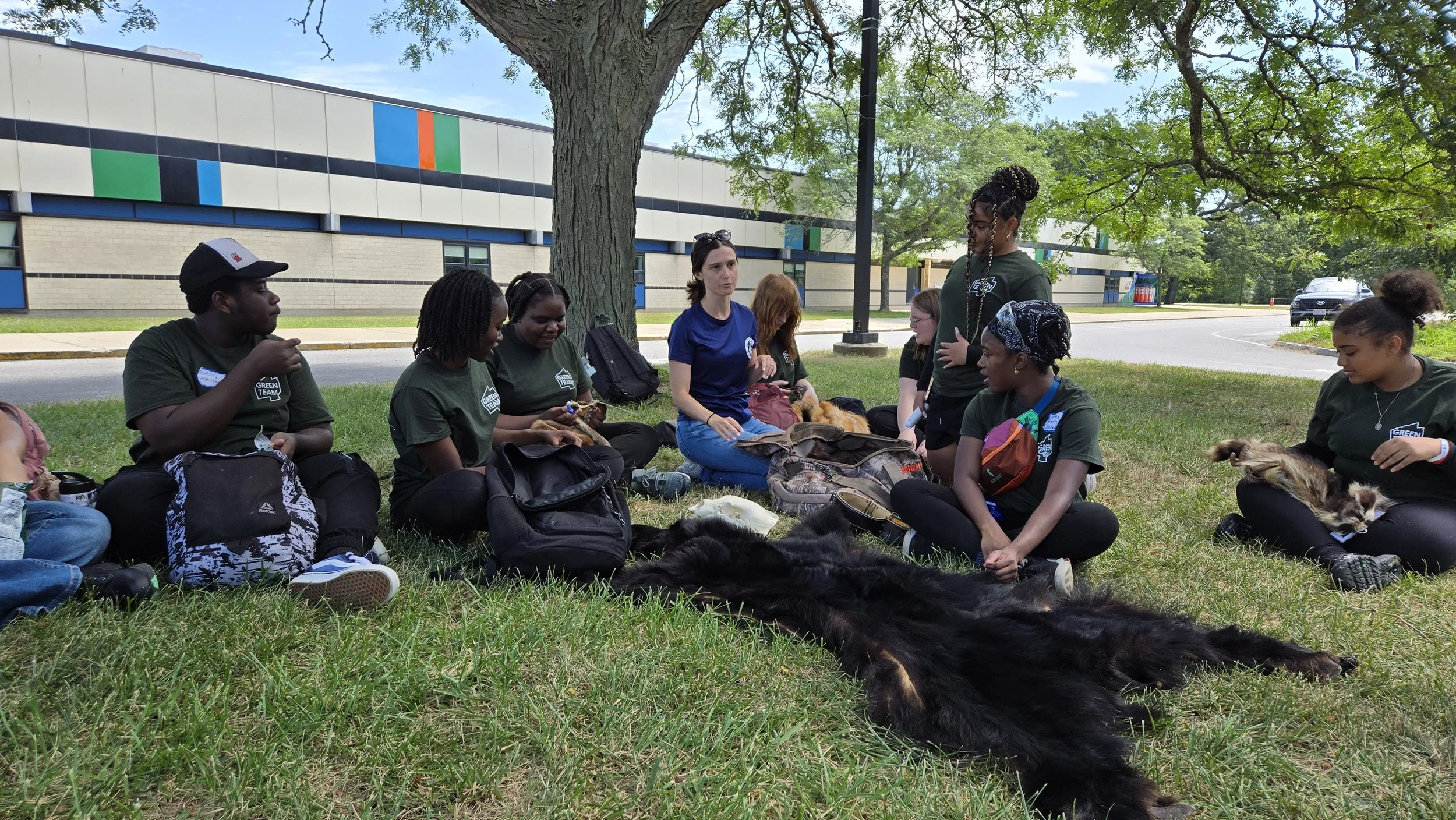
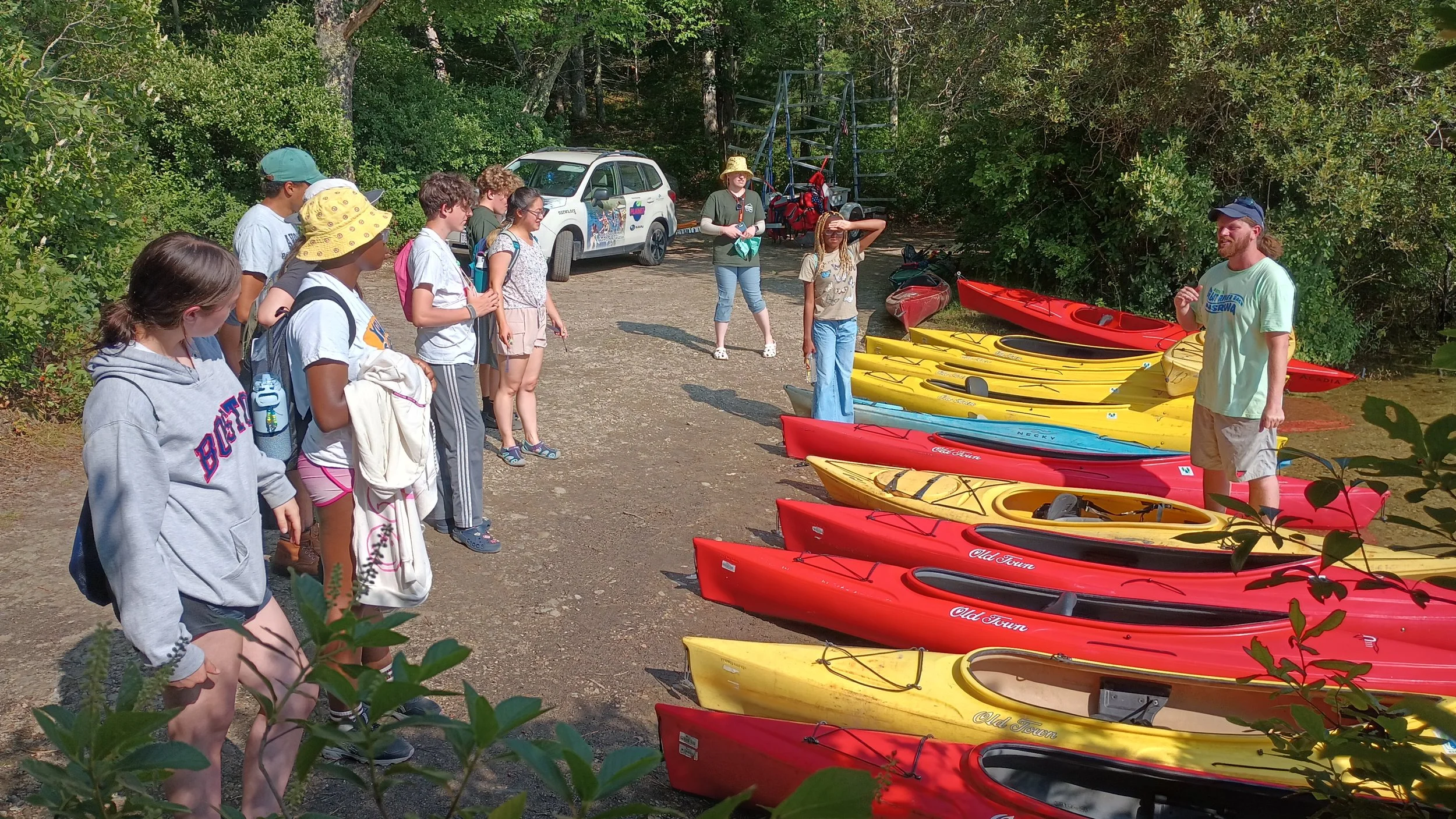
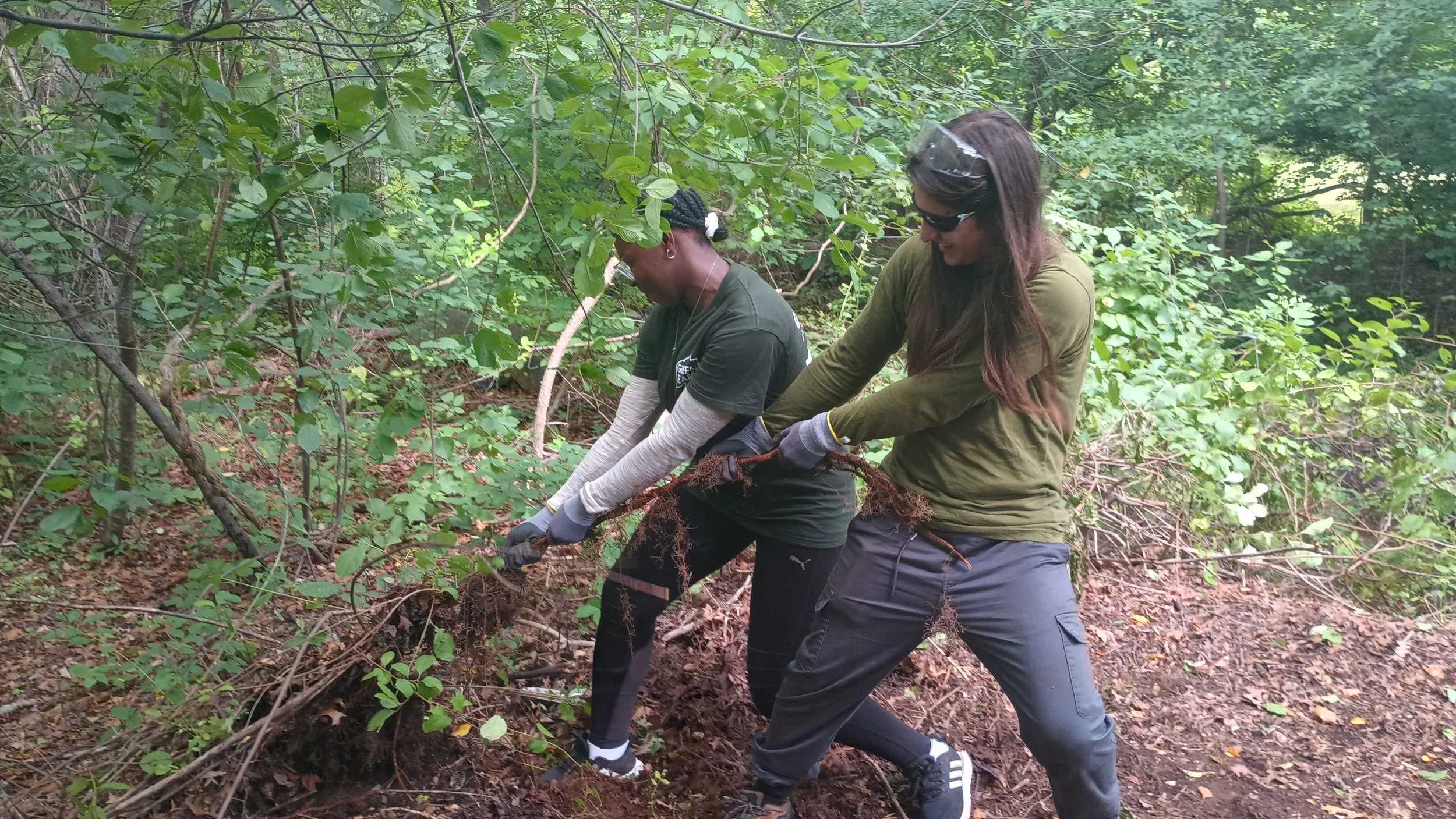
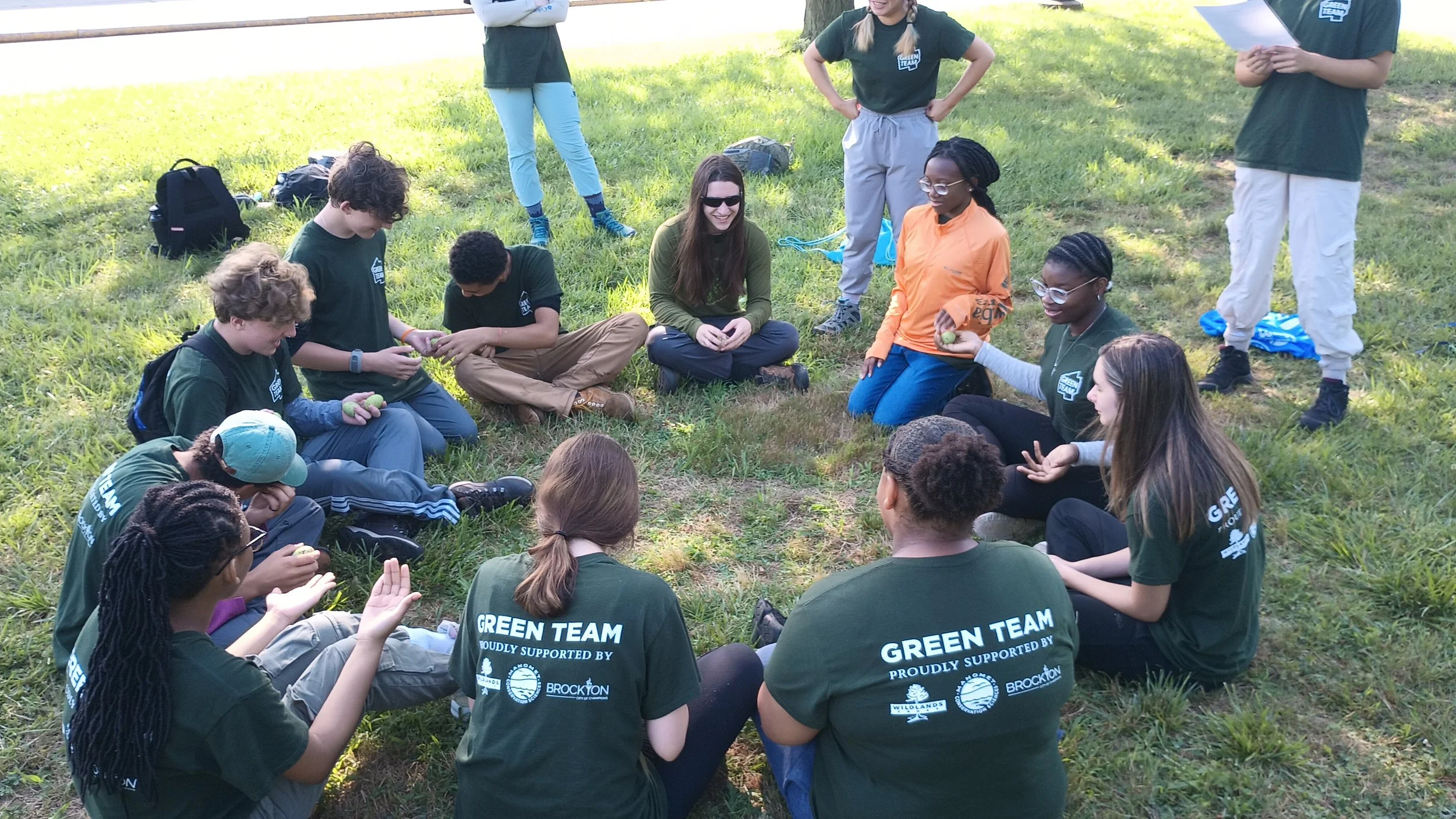
A special thanks to Tim Carpenter, the City of Brockton’s Superintendent of Parks, as well as the following organizations and individuals who volunteered their time to engage with Green Team this year:
Brockton Garden Club
Blake Dinius, Entomologist, Plymouth County Extension
Brian Taylor, North and South Rivers Watershed Association
Clark Delisle, Environmental Police Officer
Cam Connelly, Environmental Police Officer
Fuller Craft Museum, Brockton
Sean Kent, Arts & Nature Education Manager, Mass Audubon
Sarah Howdy, Education Coordinator, Mass Audubon
Mass Climate Corps, Mass Audubon
Meghan Crawford, Community Engagement Biologist, Mass Wildlife
Molly Jacobs, VP for Environmental Ed. and Outreach, Manomet
Trevor-Lloyd Evans Banding Lab, Manomet
Julia Beyer, Intern, Manomet
Camille Beckwith, Intern, Manomet
If you or a young person you know is interested in Green Team 2026, sign up for Wildlands E-News and the D.W. Field Park email list! If you are interested in sponsoring the 2026 team, please contact Amy Burt, Programming Coordinator, at aburt@wildlandstrust.org.
What Happens on a Meditation Hike?
By Betsy Hall, Volunteer Hike Leader
Betsy Hall is a longtime Wildlands Trust member and volunteer who leads Mindful Meditation, a monthly walk series that encourages new and experienced meditators to reconnect with nature. Visit wildlandstrust.org/events to view upcoming Mindful Meditation programs.
***
If you ever pass a group of silent men and women hiking on a forest trail, it is quite possible they are practicing awareness. A meditation hike uses silence (i.e. no talking) as a method for hikers to become more attuned to their inner and outer experience. In a safe group of five to 15 people, hikers have the opportunity to hear the wind rustling in the trees and birds calling out their distinctive cries. They notice the warmth of sun on their face or the chill of a cloudy day.
Hikers also have a chance to pay attention to their thoughts and feelings as they place each foot thoughtfully on the path. Acknowledging thoughts and feelings allows hikers to gently let distractions go as they return their awareness to their surroundings.
There are no rules except silence. Each person is an expert for themselves. The experience of each hiker is different. Plus, every meditation hike is different from previous hikes. Sometimes an eagle flies overhead; sometimes a seal pops up out of the water to say hello. Sometimes a ghost pipe or a lady slipper appears on the side of the trail. Each hiker responds inwardly in silence to these and many other forest wonders.
After we reach our destination, we have a chance to talk about any significant moments on the hike. Everyone is free to pass. Then we talk among ourselves on the return hike, connecting with old friends and making new ones.
***
About Betsy Hall
Betsy Hall is a meditation teacher with over 25 years of experience. She trained under renowned instructor Jose Silva, whose techniques have been studied by millions of people around the world. Betsy has also studied with Zen Masters, Buddhist teachers, and Christian leaders. She loves to lead hikes in the forest because she believes that nature is one of the greatest meditation teachers. Betsy gently leads her participants in the art of self-discovery and delight. Her career as a teacher and guidance counselor is an essential part of her foundation as a meditation guide.
Solstice Celebration: Let’s Show Up for the Region’s Lands and Waters
Attendees of Wildlands Trust’s 50th Anniversary Celebration in 2023 embrace the ancient white oak tree at Davis-Douglas Farm in South Plymouth. (Photo by Paul Carey)
By Thomas Patti, Communications Coordinator
(This piece first appeared in the Plymouth Independent.)
For a bird lover like me, the view from my office window is a blessing and a curse. A blessing because the full diversity of avian life on the South Shore—warblers and waxwings, hummingbirds and hawks, bluebirds and bald eagles—visits with enough regularity to call them coworkers. A curse because these coworkers are highly distracting, with flagrant disregard for the rhythms of a nine-to-five workday.
Luckily, I work for Wildlands Trust, a nonprofit organization with sympathy for those who wander. Founded in 1973, Wildlands Trust is one of the state’s oldest and largest land trusts, protecting and stewarding the natural places that make Southeastern Massachusetts a remarkable place to live, work, and play. Our headquarters at Davis-Douglas Farm is a hidden gem tucked within a vast expanse of globally rare forest and pond habitats in South Plymouth. Outside my window, a pollinator garden, wildflower meadow, and secluded woodland converge to form a hotspot of natural beauty, punctuated by the iconic water tower on Long Pond Road.
If you visit Davis-Douglas Farm this spring, the first birds you’ll likely see (but certainly not the last) are tree swallows. The iridescent blue backs of these sparrow-sized songbirds will catch the sunlight and your eye as they bank, swoop, glide, twist, and turn in flocks of dozens over the wildflower meadow, snapping up insects on the wing. Catching enough bugs to fuel their acrobatic frenzy is a full-time job. In fact, they rarely seem to land.
A tree swallow landing on a nest box. (Photo by Rob MacDonald)
Sometimes, the social and environmental challenges of our time can feel like those tree swallows, swirling in our minds and clamoring incessantly for our attention. In the news and on social media, rage, despair, and misinformation startle our anxieties up to the sky and offer them no place to land—no way to stand up for our beliefs, defend our values, or effect positive change.
On the issue of the environment, Wildlands Trust is a place to land. We know that most people don’t have the time to take the preservation of our region’s natural health and beauty into their own hands. But we also know that most people share our vision for the future of Southeastern Massachusetts. A resounding majority of Americans, regardless of political affiliation, support the expansion of natural climate solutions, such as protecting forests and restoring coastal wetlands. In Massachusetts, a national leader in environmental protection, over two-thirds of residents think we need to do even more to conserve land, water, and wildlife habitat.
With such broad public support for conservation, the accelerating loss of natural land across the state and country can make grassroots efforts feel hopeless. It's true that we face an uphill battle. Far too often, the fate of our beloved lands and waters is decided behind closed doors, at tables where money determines the size of your seat and the volume of your microphone.
Wildlands Trust is your chair at those tables. It may be a lawn chair. But with 52 years of experience serving 59 cities and towns, Wildlands Trust knows how to leverage every dollar and every show of support into a case for nature that money can’t buy off. The more members we represent, the better our case. Together, our voices are too loud and our vision is too strong to ignore.
On Saturday, June 21, the Wildlands Trust Solstice Celebration at Davis-Douglas Farm will have something for everyone—music, food, hikes, crafts, raffles, and more. It will also serve as an undeniable testament to the size and strength of the regional conservation community. Let's come together to make a resounding statement that nature is non-negotiable in the future of our region. Whether you're a longtime member or just now learning about Wildlands Trust, here is your chance to show up for the lands and waters of Southeastern Massachusetts—and celebrate the start of summer with family, friends, and neighbors.
When the tree swallows of Davis-Douglas Farm finally run out of steam, they find refuge in a row of bird boxes on the meadow’s edge. Here, they escape the heat, rest their wings, and tend to the next generation. Later this month, people across the region will descend on Davis-Douglas Farm to do the same. Wildlands Trust can’t help with all the worries flying around your head. But your passion for the natural world is safe with us.
Poet Tzynya Pinchback: Writing the Land at D.W. Field Park
In the video above, meet Plymouth-based poet Tzynya Pinchback! This year, Tzynya is partnering with Wildlands Trust to spotlight the beauty of D.W. Field Park in Brockton.
Writing the Land is a collaborative outreach and fundraising project that partners with nonprofit environmental organizations to coordinate the “adoption” of conserved lands for poets. Each poet is paired with a land usually for about a year, and they visit the location to create work inspired by place. Learn more at writingtheland.org.
Tzynya Pinchback is a poet, essayist, and author of the poetry chapbook “How to Make Pink Confetti” (Dancing Girl Press, 2012). Her recent work centers on the Black woman body in nature and in joy as an act of resistance and appears in Deaf Poets Society, Mom Egg Review, Naugatuck River Review, Raising Mothers, and is broadcasted on WOMR’s Poets Corner. She was a finalist for 2020 Poet Laureate of Plymouth, Massachusetts, and 2020 writer-in-residence for the Cordial Eye Gallery & Artist Space. Tzynya is a Los Angeles native who is surviving cancer and New England winters in Plymouth, MA.
Stay tuned for opportunities to engage in Tzynya’s work!



